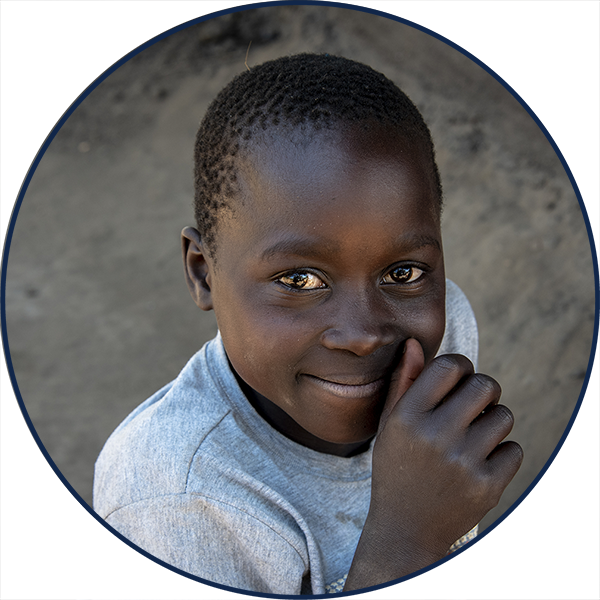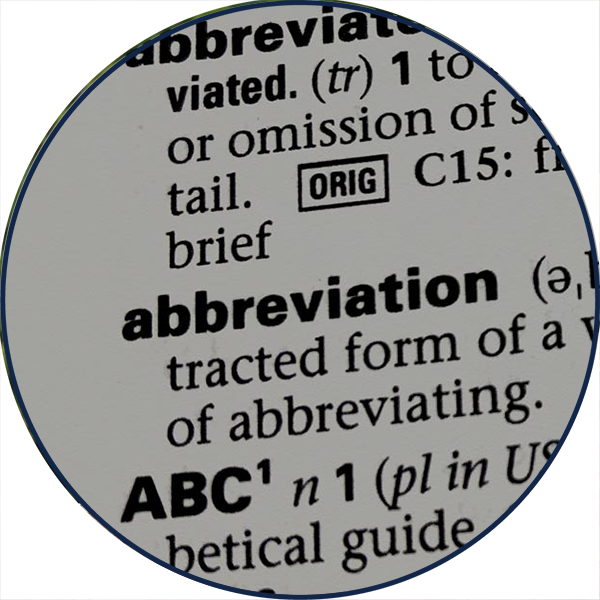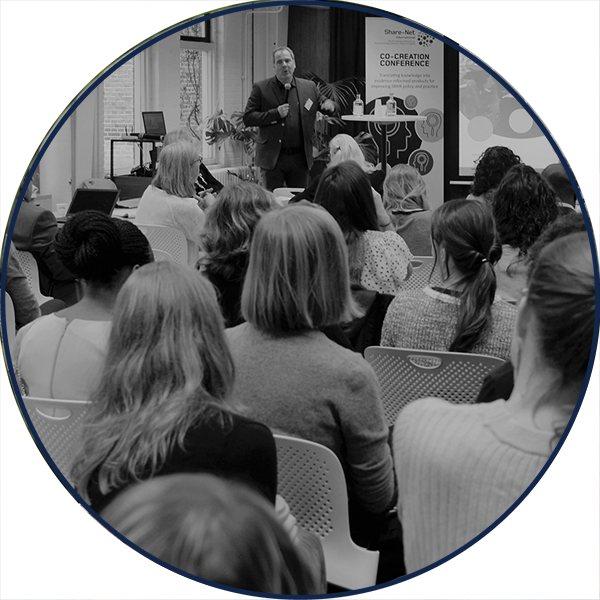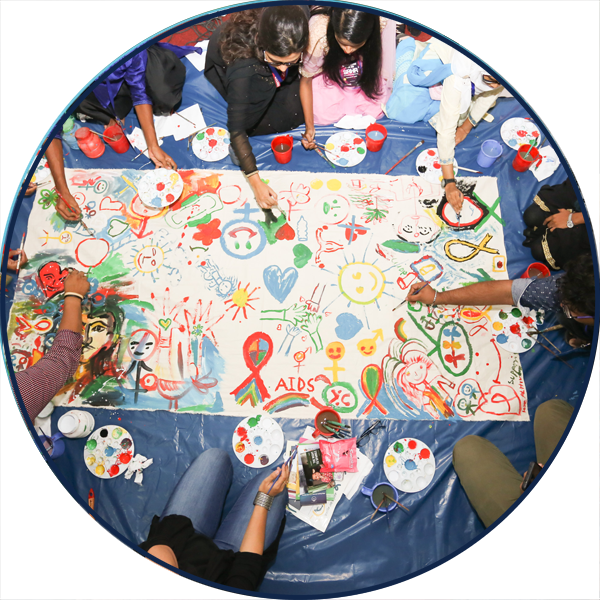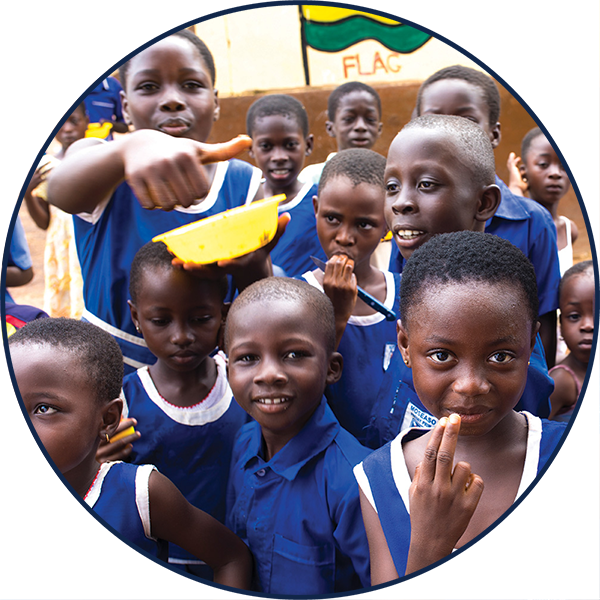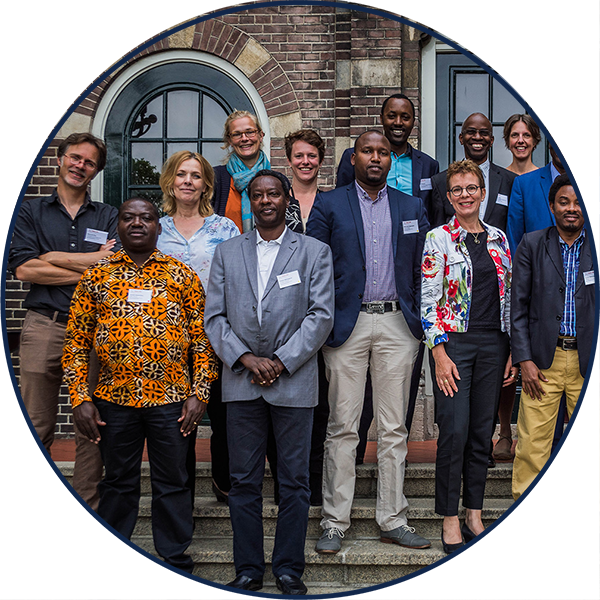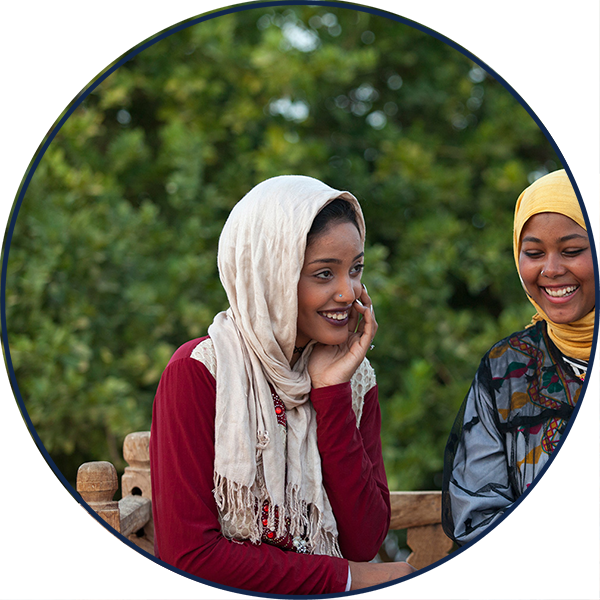Share-Net became the knowledge platform for SRHR in September 2013, after winning the MoFA’s tender to host the secretariat, with KIT as host organisation. This resulted in a change of name to Share-Net International (SNI). At the time, it was one of the five knowledge platforms established by different ministries. The MoFA called for specialised institutions to be able to respond to complex development issues and interact with policymakers to support evidence-based policies. Share-Net Netherlands (SN-NL) became the first country hub within SNI. Other country hubs are based in Bangladesh, Burundi and Jordan. SNI and the country hubs have grown over the last seven years (2013 – 2019), ensuring that knowledge on SRHR is translated, developed, shared and promoted in both the local and the international network. Thus, SNI has developed this narrative report covering 2013 – 2019 to capture the outcomes and impact of the work that has been undertaken since its inception. Furthermore, the report highlights the successes and lessons learned from the last seven years and aims to provide the MoFA and SNI members with a transparent and holistic picture of SNI and its country hubs.
Acronyms and abbreviations
| ACB | - AIDS Coordination Bureau |
| AIDS | - Acquired Immune Deficiency Syndrome |
| AP | - Action Period |
| BCC | - Behavioural Change Communications |
| CA | - Collaborative Approach |
| CCC | - Co-Creation Conference |
| CM | - Child Marriage |
| CSO | - Civil Society Organisation |
| CoP | - Community of Practice |
| DGIS | - Directorate-General for International Cooperation |
| EKN | - Embassy of the Kingdom of the Netherlands |
| GBV | - Gender-Based Violence |
| GoB | - Government of Bangladesh |
| HPC | - Higher Population Council |
| HIV | - Human Immunodeficiency Viruses |
| ICPD | - International Conference on Population and Development |
| KIT | - Royal Tropical Institute |
| MoFA | - Ministry of Foreign Affairs |
| NGO | - Non-Governmental Organisation |
| PDSA | - Plan, Do, Study, Act |
| SDG | - Sustainable Development Goals |
| SHIRIM | - Share-Net International Rapid Improvement Model |
| SN-BD | - Share-Net Bangladesh |
| SN-BDI | - Share-Net Burundi |
| SN-JO | - Share-Net Jordan |
| SNI | - Share-Net International |
| SN-NL | - Share-Net Netherlands |
| SRHR | - Sexual and Reproductive Health and Rights |
| UNFPA | - United Nations Population Fund |
Dear Reader
At Share-Net International, we are continually thankful every day for the hard work and commitment of the Share-Net secretariats in each of our country hubs and of all of our members. While writing this report, we have had the opportunity to reflect on the work that we have done over the course of the last seven years and marvel at our achievements. As a community, we have come together in times of triumph and in times of tribulation. We have faced opposition and derision in the global arena and rejected repression from those who seek to undermine the SRHR movement. We have watched, with pride, how much the Share-Net community has grown and came together as a family. With this report, we have been reminded of the impact of our collective work and collaboration and have reaffirmed our belief that we can and need to make a difference in the fight to improve SRHR for everyone.
On behalf of the Share-Net International secretariat,
Meike Stieglis
Interim Share-Net International Coordinator
15th of June 2020, Amsterdam
Executive summary
Over the past seven years, Share-Net International (SNI) has been playing a major role as a sexual and reproductive health and rights (SRHR) knowledge platform, providing innovative and creative solutions to help SRHR practitioners, policymakers and researchers generate, share and translate knowledge on a wide range of sensitive and neglected SRHR topics. It also creates opportunities for its members to promote the use of knowledge systematically through its networking activities.
While SNI and its country hubs have achieved various milestones since establishing the platform (both online and offline), such as engaging SRHR practitioners globally through the Co-Creation Conference, translating knowledge using the Share-Net International Rapid Improvement Model, and involving young people through different activities, lessons have been learned that can be beneficial for the knowledge platform to enhance its operations in the future. SNI, therefore, aims to present these achievements and reflect on the lessons learned from the last seven years in this report for the Ministry of Foreign Affairs (MoFA) in the Netherlands and SNI members.
The report has been divided into five chapters. The first chapter briefly introduces SNI and its country hubs. The second chapter highlights the different stages of SNI’s professionalisation. The third chapter highlights the impact of SNI connecting with its short-term and long-term outcomes. The fourth chapter highlights the work with the Nederlandse Organisatie voor Wetenschappelijk Onderzoek (NWO-WOTRO), and the last chapter discusses the lessons learned.
This report highlights the growing efforts of SNI and its country hubs to ensure that evidence-informed policies and practices on SRHR are developed, shared and promoted through meaningful participation of international and local SRHR practitioners. This report also discusses the experience of working with NWO-WOTRO and its research projects, and how it facilitated the knowledge agenda commissioned by the MoFA. It collects the perceptions and experiences of SNI and the members of its country hubs by interviewing them and organising focus group discussions. The continuous collaboration to address various SRHR issues by SNI and its country hubs has resulted in a trusted knowledge platform where SRHR practitioners have the opportunity to generate and translate innovative knowledge products. Furthermore, this report highlights that SNI’s tireless efforts to ensure that the four country hubs operate in their respective countries resulted in vibrant SRHR Communities of Practice in Bangladesh, Burundi, Jordan and the Netherlands. While the achievements have enabled SNI and its country hubs to expand their knowledge activities, the lessons learned focus on further improvement. Drawing on these lessons learned, SNI and its country hubs aim to continue to achieve the desired impact, which is evidence-informed policies and practices contributing to improved sexual and reproductive health and rights.
Introduction
Share-Net started as the Dutch network on sexual and reproductive health and rights (SRHR) and has been in operation for more than 18 years (since early 2001). With support from the Dutch Ministry of Foreign Affairs (MoFA), the Royal Tropical Institute (KIT) initiated the network to respond to the needs of different international development stakeholders in the Netherlands to strengthen collaboration and increase the knowledge base to inform their work. When setting up the Share-Net secretariat, KIT built on its prior experience hosting the AIDS Coordination Bureau (since 1987, the ACB). As an important source of information and knowledge for partners working in the area of HIV, the ACB was absorbed into Share-Net. Share-Net had a paying membership structure from the beginning and was receiving financial support from the Directorate-General for International Cooperation (DGIS) and the United Nations Population Fund (UNFPA)
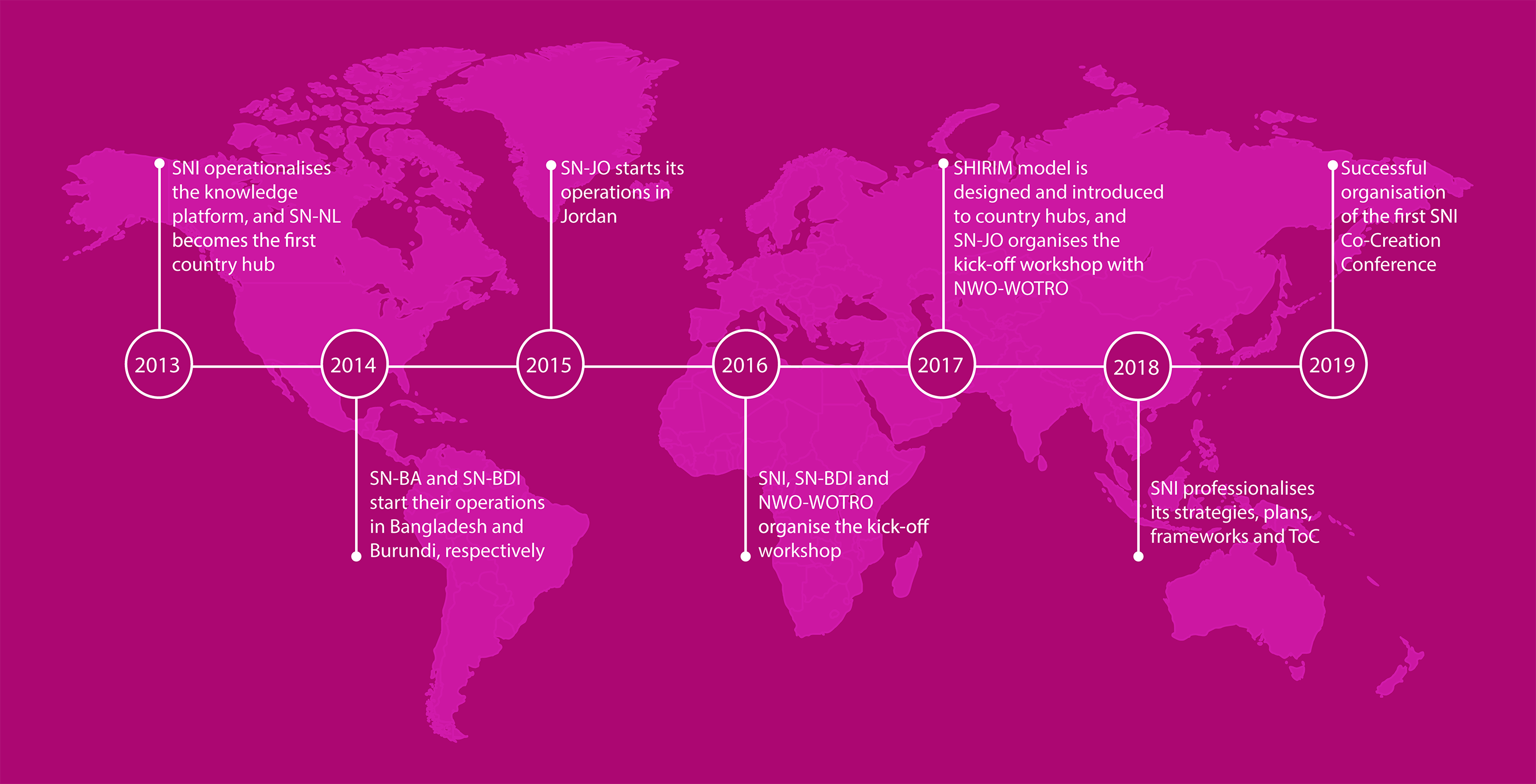
Share-Net International 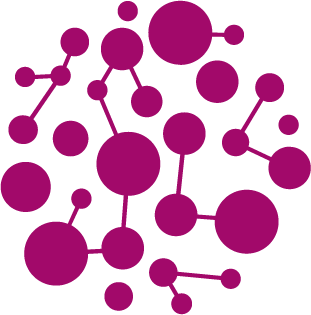
SNI has been working together with non-government organisations (NGOs), researchers, development practitioners, policymakers[1], students and media outlets globally. It has supported the SRHR agenda agreed at the International Conference on Population and Development (ICPD) in 1994 and developed a Framework of Action. While the platform has supported global partners in implementing comprehensive SRHR through knowledge management and networking, it has also been working closely with its country hubs to systematically collect and collate SRHR knowledge and share it with local practitioners to identify gaps and ensure that evidence-informed policies and best practices are developed and disseminated. To share existing knowledge, generate new knowledge to address prioritised research gaps, and translate knowledge for SRHR practitioners to contribute to the development of better policy and practice, SNI has been supporting its four country hubs for the last seven years to achieve a common mission and vision. As a result, these country hubs have their independent member-based platforms (both online and offline), where knowledge is generated, translated and shared successfully. Continuous efforts to translate knowledge resulted in the design and implementation of the Share-Net International Rapid Improvement Model (SHIRIM) in 2017-2018, and organisation of the first Co-Creation Conference (CCC) in 2019. These allowed the members of the country hubs to share their ideas, knowledge and experience at the international level to expand the work on sensitive and neglected SRHR topics. Furthermore, they also allowed members from different country hubs and international experts to learn from each other.
Share-Net Netherlands 
Share-Net Netherlands (SN-NL) is the Dutch knowledge platform on SRHR, supporting the SRHR community in the Netherlands through paid membership. SN-NL has been operating the knowledge platform in the Netherlands since 2000. Over the years, SN-NL has evolved into a larger knowledge platform with Communities of Practice (CoPs)[2] on more than 14 SRHR themes[3]. With 63 organisational members from NGOs, universities and research institutes and the private sector, and individual members, SN-NL has been focusing on strengthening knowledge to develop evidence-based policies and practices, and ensuring that resources are used strategically and to maximum effect, among other aims, in relation to the four core[4] areas of Dutch policy on SRHR. The hub has involved its members in organising a wide range of thematic meetings, lectures, debriefings and consultations to ensure that knowledge is shared systematically. SN-NL also disseminates bi-weekly newsletters to its members, ensuring that current information on SRHR is available and accessible for them.
Share-Net Bangladesh 
Share-Net Bangladesh (SN-BD) started as a knowledge platform in October 2014. The growing effort by the Government of Bangladesh to reduce maternal mortality and morbidity in the country allowed a diverse range of NGOs to work on SRHR. Although this was important, the SRHR-related activities of the NGOs remained in silos. Thus, SN-BD was established to bring the SRHR practitioners together in one platform to share and translate knowledge systematically and effectively.
This country hub is SNI’s largest member-based platform, consisting of more than 1,200 individual members and 78 organisational members. With the engagement of the Government of Bangladesh and the Embassy of the Kingdom of the Netherlands in Bangladesh, SN-BD has organised four knowledge fairs on SRHR – events that provide an opportunity for its members to share their research and work through presentations, discussions and stalls with the SRHR community in Bangladesh.
The country hub also ensures that young people in Bangladesh are involved in SRHR. As a result, it has engaged youth in the knowledge fair, organised meetings between students and NGOs, and started the young research fellowship programme to encourage young people to generate knowledge on SRHR. It also publishes articles and develops knowledge (such as booklets, video interviews, desk reviews, policy briefs, infographics) on different SRHR issues to ensure that the knowledge is translated and reaches a wider audience. SN-BD is hosted by RedOrange Media and Communications.
Share-Net Burundi 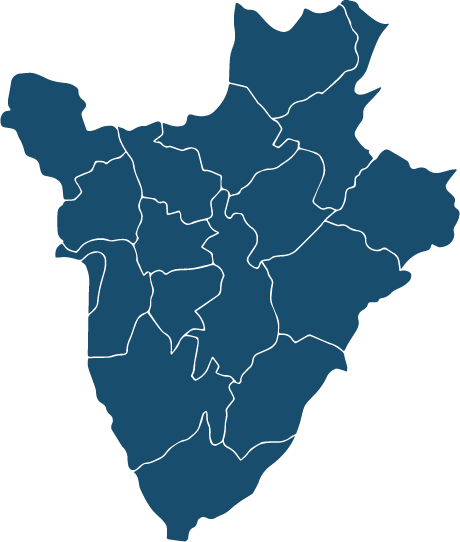
Share-Net Burundi (SN-BDI) was established in 2014, with Population Media Centre as its host. While the country had made progress in the area of SRHR, the challenges in the field of teenage pregnancy, HIV/AIDS and maternal mortality still persisted. Over the years, international and local NGOs increased their efforts on SRHR in Burundi, and this created an urgency to establish a platform to collect and share knowledge. Since its inception, SN-BDI has been playing an important role in enabling the dissemination, translation and generation of knowledge as well as collaboration among the SRHR practitioners in the country. The country hub has organised workshops for the SRHR practitioners in Burundi to strengthen their knowledge, and has developed policy briefs, desk reviews and position papers on different SRHR issues. Other notable achievements include content in English and French on the online knowledge platform, the bi-monthly newsletters, the six technical CoPs, support for research projects, and participation in knowledge translation at the Co-Creation Conference (CCC).
Share-Net Jordan 
Share-Net Jordan (SN-JO) started operating in 2015, with a special focus on facilitating evidence-informed knowledge management to improve the SRHR of Jordanian citizens. The Government of Jordan considers reproductive health services a national priority for primary health care, and this allows SN-JO to work on facilitating knowledge generation and dissemination on a wide range of SRHR issues. The country hub has created a strong steering committee from key stakeholders in the field of SRHR, such as government and international agencies concerned with health services, as well as NGOs, universities, the national parliament and the Jordanian National Commission for Women. The Higher Population Council is the hosting organisation and has the mandate to strengthen capacity for reproductive health research in Jordan. Therefore, SN-JO has also prioritised work on the translation of research into policy and practice, by advocating for an enabling environment for research development and programme implementation. Furthermore, the hub has continued its efforts to organise capacity-building workshops for its members to promote the application of knowledge in the field of SRHR to achieve the Sustainable Development Goals.
SN-JO has a bilingual website (Arabic and English) to reach out to the wider audience. Furthermore, the country hub has successfully developed and disseminated quarterly newsletters, policy briefs and position papers, organised CoP meetings and ensured active participation at regional and international conferences.
Share-Net International 
SNI has been working together with non-government organisations (NGOs), researchers, development practitioners, policymakers[1], students and media outlets globally. It has supported the SRHR agenda agreed at the International Conference on Population and Development (ICPD) in 1994 and developed a Framework of Action. While the platform has supported global partners in implementing comprehensive SRHR through knowledge management and networking, it has also been working closely with its country hubs to systematically collect and collate SRHR knowledge and share it with local practitioners to identify gaps and ensure that evidence-informed policies and best practices are developed and disseminated. To share existing knowledge, generate new knowledge to address prioritised research gaps, and translate knowledge for SRHR practitioners to contribute to the development of better policy and practice, SNI has been supporting its four country hubs for the last seven years to achieve a common mission and vision. As a result, these country hubs have their independent member-based platforms (both online and offline), where knowledge is generated, translated and shared successfully. Continuous efforts to translate knowledge resulted in the design and implementation of the Share-Net International Rapid Improvement Model (SHIRIM) in 2017-2018, and organisation of the first Co-Creation Conference (CCC) in 2019. These allowed the members of the country hubs to share their ideas, knowledge and experience at the international level to expand the work on sensitive and neglected SRHR topics. Furthermore, they also allowed members from different country hubs and international experts to learn from each other.
Share-Net Netherlands 
Share-Net Netherlands (SN-NL) is the Dutch knowledge platform on SRHR, supporting the SRHR community in the Netherlands through paid membership. SN-NL has been operating the knowledge platform in the Netherlands since 2000. Over the years, SN-NL has evolved into a larger knowledge platform with Communities of Practice (CoPs)[2] on more than 14 SRHR themes[3]. With 63 organisational members from NGOs, universities and research institutes and the private sector, and individual members, SN-NL has been focusing on strengthening knowledge to develop evidence-based policies and practices, and ensuring that resources are used strategically and to maximum effect, among other aims, in relation to the four core[4] areas of Dutch policy on SRHR. The hub has involved its members in organising a wide range of thematic meetings, lectures, debriefings and consultations to ensure that knowledge is shared systematically. SN-NL also disseminates bi-weekly newsletters to its members, ensuring that current information on SRHR is available and accessible for them.
Share-Net Bangladesh 
Share-Net Bangladesh (SN-BD) started as a knowledge platform in October 2014. The growing effort by the Government of Bangladesh to reduce maternal mortality and morbidity in the country allowed a diverse range of NGOs to work on SRHR. Although this was important, the SRHR-related activities of the NGOs remained in silos. Thus, SN-BD was established to bring the SRHR practitioners together in one platform to share and translate knowledge systematically and effectively.
This country hub is SNI’s largest member-based platform, consisting of more than 1,200 individual members and 78 organisational members. With the engagement of the Government of Bangladesh and the Embassy of the Kingdom of the Netherlands in Bangladesh, SN-BD has organised four knowledge fairs on SRHR – events that provide an opportunity for its members to share their research and work through presentations, discussions and stalls with the SRHR community in Bangladesh.
The country hub also ensures that young people in Bangladesh are involved in SRHR. As a result, it has engaged youth in the knowledge fair, organised meetings between students and NGOs, and started the young research fellowship programme to encourage young people to generate knowledge on SRHR. It also publishes articles and develops knowledge (such as booklets, video interviews, desk reviews, policy briefs, infographics) on different SRHR issues to ensure that the knowledge is translated and reaches a wider audience. SN-BD is hosted by RedOrange Media and Communications.
Share-Net Burundi 
Share-Net Burundi (SN-BDI) was established in 2014, with Population Media Centre as its host. While the country had made progress in the area of SRHR, the challenges in the field of teenage pregnancy, HIV/AIDS and maternal mortality still persisted. Over the years, international and local NGOs increased their efforts on SRHR in Burundi, and this created an urgency to establish a platform to collect and share knowledge. Since its inception, SN-BDI has been playing an important role in enabling the dissemination, translation and generation of knowledge as well as collaboration among the SRHR practitioners in the country. The country hub has organised workshops for the SRHR practitioners in Burundi to strengthen their knowledge, and has developed policy briefs, desk reviews and position papers on different SRHR issues. Other notable achievements include content in English and French on the online knowledge platform, the bi-monthly newsletters, the six technical CoPs, support for research projects, and participation in knowledge translation at the Co-Creation Conference (CCC).
Share-Net Jordan 
Share-Net Jordan (SN-JO) started operating in 2015, with a special focus on facilitating evidence-informed knowledge management to improve the SRHR of Jordanian citizens. The Government of Jordan considers reproductive health services a national priority for primary health care, and this allows SN-JO to work on facilitating knowledge generation and dissemination on a wide range of SRHR issues. The country hub has created a strong steering committee from key stakeholders in the field of SRHR, such as government and international agencies concerned with health services, as well as NGOs, universities, the national parliament and the Jordanian National Commission for Women. The Higher Population Council is the hosting organisation and has the mandate to strengthen capacity for reproductive health research in Jordan. Therefore, SN-JO has also prioritised work on the translation of research into policy and practice, by advocating for an enabling environment for research development and programme implementation. Furthermore, the hub has continued its efforts to organise capacity-building workshops for its members to promote the application of knowledge in the field of SRHR to achieve the Sustainable Development Goals.
SN-JO has a bilingual website (Arabic and English) to reach out to the wider audience. Furthermore, the country hub has successfully developed and disseminated quarterly newsletters, policy briefs and position papers, organised CoP meetings and ensured active participation at regional and international conferences.
Internal Change
While many global networks are working on taking the SRHR agenda forward, it is worth mentioning that SNI and its country hubs offer a unique approach to managing knowledge on SRHR to improve evidence-informed policy and programmes. As a result, SNI has become a vibrant network bringing together SRHR practitioners, media outlets, researchers, students and policymakers from all over the world on a safe platform to discuss sensitive and neglected topics on SRHR. As the network grew further, it became apparent that there was a need to further professionalise SNI and its country hubs. Therefore, in 2018 SNI developed strategies, concepts, a Theory of Change, a governance structure and plans to guide the country hubs and the international knowledge platform.
"We started the professionalisation by reviewing tasks and how best to share these amongst different staff members aiming at heigher efficiency"
Francoise Jenniskens,
the Former Coordinator of Share-Net International.
Governance Structure
The positive results from past years encouraged SNI to refine its institutional framework and governance structure in 2018 to take up the new challenges, and to govern the network in the coming years. Following several recommendations from SNI's business meeting in 2017, and after several internal consultations, SNI drafted the governance structure. After presenting the draft structure to its members at 2018's business meeting and incorporating suggestions, SNI finalised the governance structure. This allowed SNI to further redefine its core knowledge management processes, which are:
This allowed SNI to further redefine its core knowledge management processes, which are:

Knowledge generation:
Addressing priority knowledge gaps through research and further analysis and synthesis of existing data

Knowledge-sharing:
Dissemination through a wide range of channels and tools of both new and existing knowledge, as available research findings are often not known by those who could/should use them

Knowledge translation:
Ensuring evidence is presented in formats appropriate for the intended audience so that they can be accessed, understood and used by advocates, policymakers, programme managers, practitioners, the private sector, users, the media and researchers

Promotion of use of knowledge:
Promotion of the use of knowledge products and formats by policymakers and practitioners to improve policy and practice

Network development and matchmaking:
At national (CoPs) and international level (partners), and matching the needs of certain members with the services that our partners can offer (i.e. between our members and the private sector and between young researchers and NGOs in need of research)
Figure 2: SNI's core knowledge management processes
Vision
"All people have the freedom of choice, are able to make informed decisions, can take action on their sexual and reproductive health and have access to quality care to meet their sexual and reproductive health needs and rights."
Mission
"To strengthen linkages between research, policy and practice through sharing, generating, translating and promoting the use of knowledge for the development of better policies and practices in SRHR."
Figure 3: The vision and mission of SNI
SNI and its country hubs have agreed to endorse and work on the core mission and vision of SNI[5] (see Figure 3). The shared values[6] have also been identified so that SNI and its country hubs are able to operate the knowledge platforms in accordance with its mandate, and serve as a network with the involvement of a wide range of CoPs from different topics on SRHR.
The current structure of SNI consists of two levels of management: the international level and the country level. The country hubs consist of a national steering committee, a national secretariat and a host organisation, and the international platform has an international board, an international secretariat and a host organisation (see Figure 4). SNI is governed by its international board members; the country hubs are represented by one member each. The board members play the primary role in oversight, direction, strategic decision-making and monitoring progress. Each country hub has active steering committee members who are responsible for providing strategic guidance, supporting local fundraising and monitoring progress.
The secretariat of each hub has responsibilities to support the steering committee and operationalise the hub’s activities. The core responsibility of the SNI secretariat lies in coordinating all international knowledge management activities and providing support to the international board members, including facilitating and organising board meetings to enable the board to make informed decisions.
An external evaluation of SNI conducted by Kaleidos Research in 2017 unveiled that the unclear definitions of different terminologies such as knowledge platform, network and working groups had led to misinterpretation and confusion. This was addressed by developing the aforementioned governance structure (Figure 4), where definitions of all the terminologies are elaborated and explained. Simultaneously, a branding manual was developed to ensure that SNI and its country hubs communicated a consistent and common brand identity to their audience.
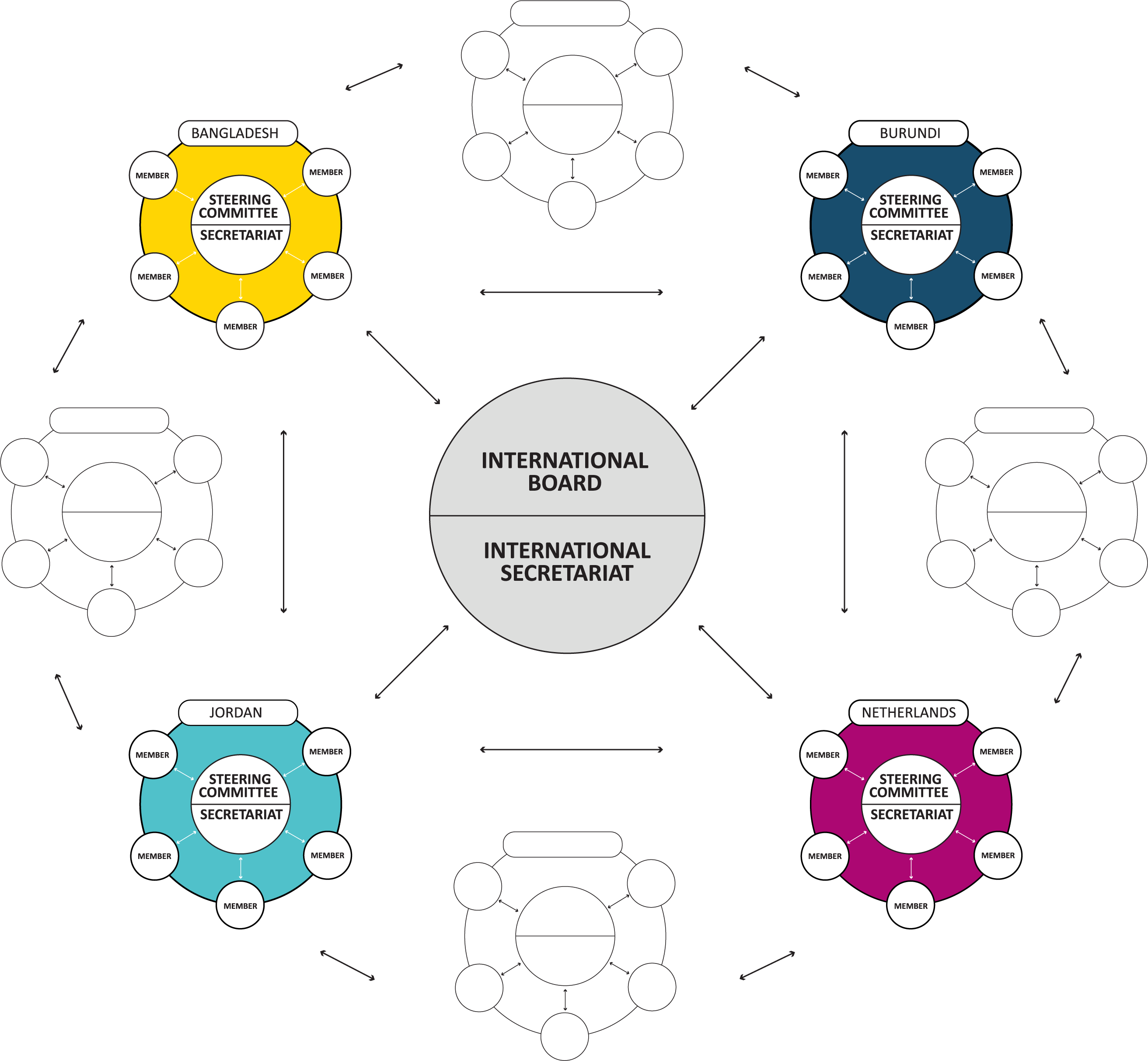
Figure 4: Governance structure of SNI
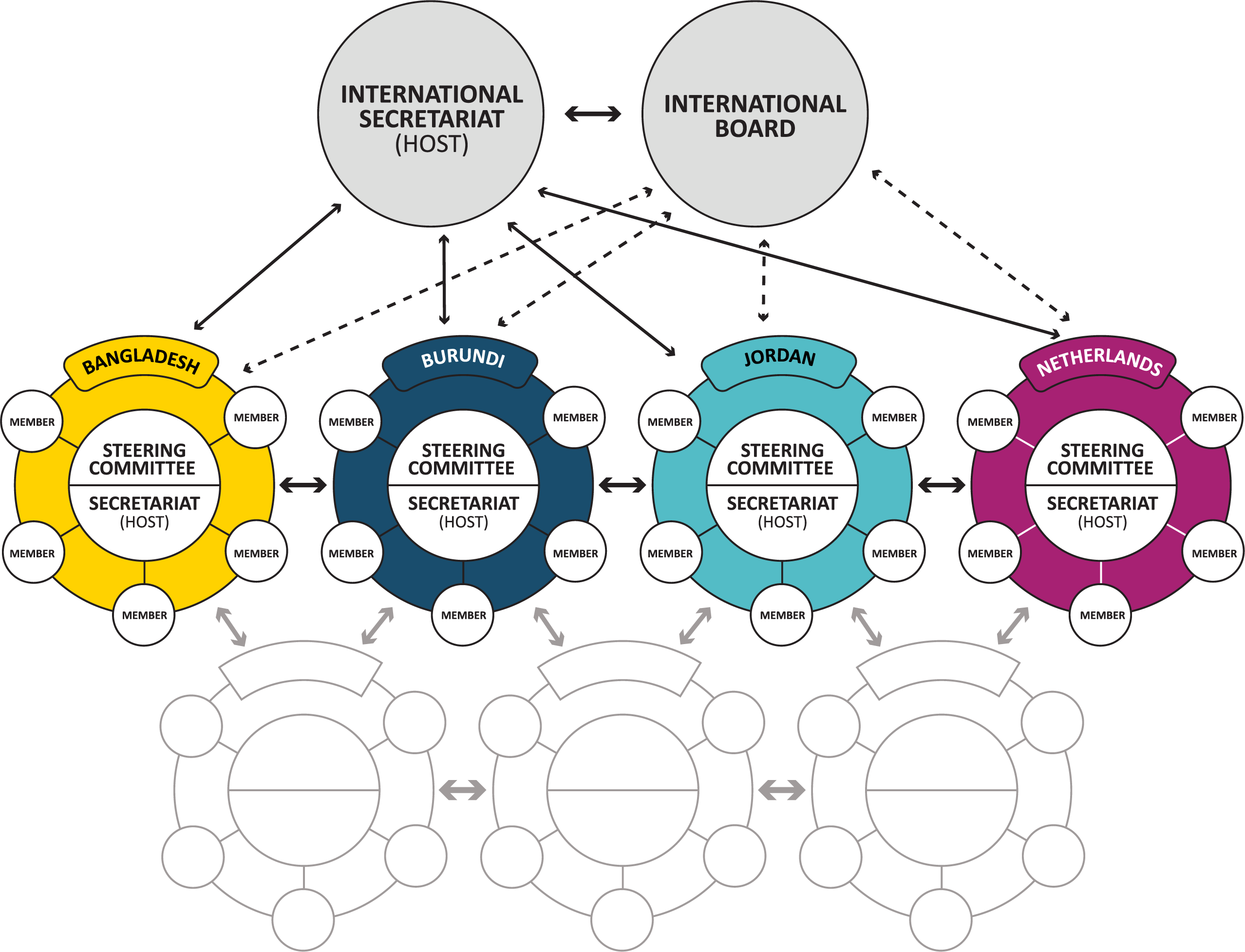
Figure 5: Institutional framework
Communities of Practice
SNI's working groups were replaced by CoPs in 2018. This new structure allowed SNI to continue with the discussions and exchange within the groups, and to ensure a focus on the knowledge needs and priorities of members. The CoPs aim to have a more systematic, focused and demand-driven approach and a clearer focus on maximising impact by using knowledge effectively to improve SRHR practices and policies.As the governance structure and common branding identity clarified some of the misinterpretations of the role of SNI and its country hubs, it became crucial to develop a concept note clarifying the roles and responsibilities of the CoPs. Hence, a concept note was developed, which identified roles and responsibilities of CoPs regarding contributing to, discussing, sharing, using and having access to evidence and knowledge products that are relevant to the specific areas of work necessary to improve SRHR policies and practices.
The current structure allows SNI to leverage the international community to forge CoPs to move forward with the sensitive and neglected SRHR agenda globally, while ensuring that local voices are heard at the global level.
Theory of Change
Additionally, in 2016, SNI transformed its logical framework with indicators into a first version of our Theory of Change (ToC). The evaluation from 2017 highlighted that the first version of the ToC needed further modification to define outcomes that are achievable and realistic. The current ToC provides concise and clear pathways of knowledge management[7] to achieve the desired outcomes and impact. The short-term outcomes highlight the role of the network and the need to improve access to SRHR information. They create possibilities to lead to the intermediate outcomes, which focus on what needs to be done to ensure effective and active CoPs are in place. While the ToC provides a comprehensive illustration of how to achieve the desired outcomes, SNI designed and developed a Monitoring and Evaluation (M&E) framework to harvest the results from the activities done by the country hubs as well as by SNI. The current M&E framework allows the country hubs to systematically determine deliverables, the ongoing progress, and the outputs. SNI, together with its country hubs, is currently working on refining and improving the M&E system to ensure effective measuring on outcome level for hubs and SNI.
↘
The short-term outcomes highlight the role of the network and hubs and where the interactions in CoPs will lead:
- A network of SRHR CoPs is operational, enabling members and strategic partners to connect, discuss and share, translate and jointly create SRHR knowledge.
- Policymakers, practitioners and researchers have better access to SRHR information and knowledge.
↘
The intermediate outcomes leading to the long-term outcomes show what needs to be done effectively in the CoPs:
- Actual and effective learning is taking place between and in countries among researchers, policymakers, practitioners, the media and the private sector.
- Researchers address scientifically, politically and practically relevant knowledge gaps in SRHR.
↘
These intermediate outcomes will further lead to two long-term outcomes which are:
- National, sustainable and empowered communities of practice on SRHR are established and operational
- Knowledge is applied to evidence-informed SRHR programmes, policies and practices
These two outcomes will further contribute in achieving the impact defined by the SNI Which is;
↓
"SNI strives for: Evidence-informed policies and practices contributing to improved Sexual and Reproductive Health and Rights."
Figure 6: Short-term, intermediate outcomes and long-term outcomes to Impact
Five-year Strategic Plan
Additionally, a five-year strategic plan was developed in 2018 jointly with the members of Share-Net International and the four country hubs. The process was further led by a task force consisting of some members of the international board and steering committee, representatives of different actors, and the secretariats of SNI and SN-NL. This five-year strategic plan illustrates the key elements that SNI and its country hubs aim to achieve from the years 2018-2022. It highlights the core services of the platform which sought to be followed from the ToC and its pathways. Furthermore, the plan demonstrates the strategies for sustainable growth. The growing membership base at the country levels as well as the international level has encouraged the SNI to further expand its network, which has been reflected in the plan where SNI aims to establish up to four new country hubs by the end of 2022. The SNI secretariat has conducted SWOT analysis[8] to identify the great potential for expansion, and the need for SNI as the knowledge platform on SRHR. The analysis revealed that SNI is an accessible platform, and highly appreciated by its members. The plan also provides a strategy for increasing funding opportunities, and diversifying funding streams. Three fundraising targets have been set to increase the sustainability of the SRHR knowledge platform.
The aforementioned strategies, plans, framework, ToC and concepts were designed and developed to ensure that the country hubs and SNI have a clear mandate to achieve the common mission and vision. As the initial agreement to operate the knowledge platform was up until August 2017, SNI requested a budget-neutral extension until the end of December 2017, which was granted by the MoFA. Simultaneously, SNI continued discussions with the MoFA to apply for a 25% top-up to maintain the knowledge platform throughout 2018 and 2019. The proposal submitted by SNI was approved at the end of 2017, which allowed it to further professionalise and secure funds for its country hubs to continue operations in their respective countries.
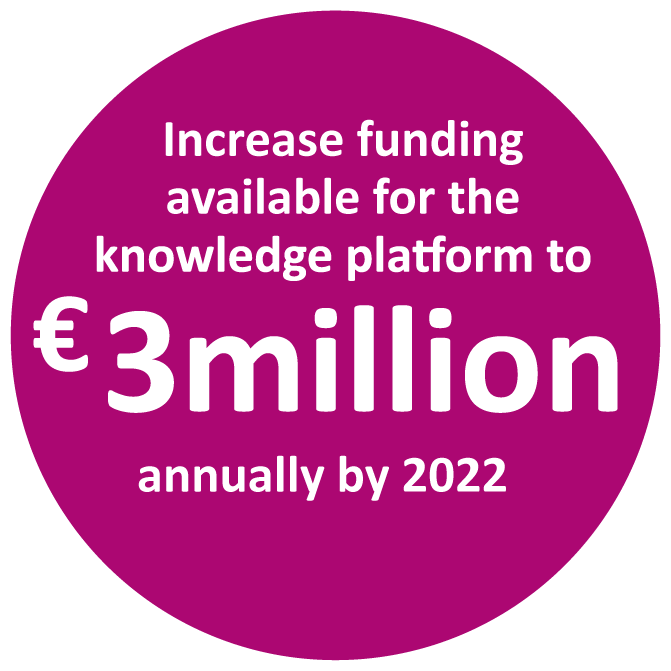
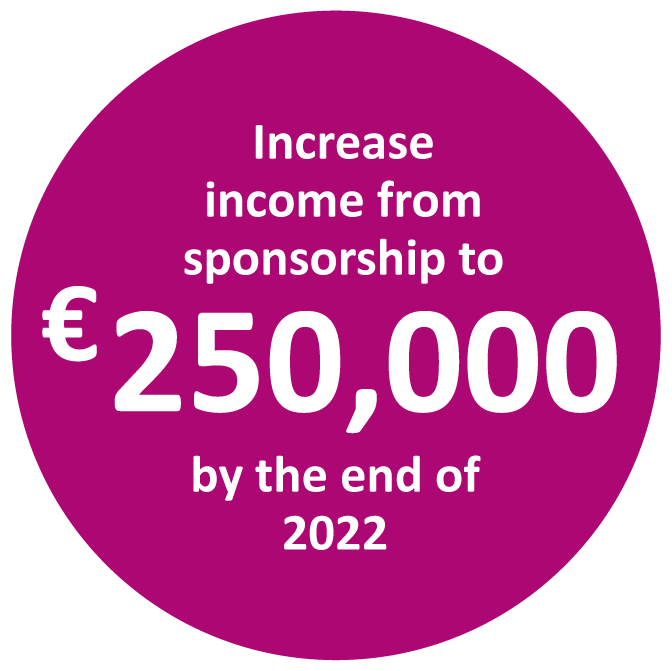
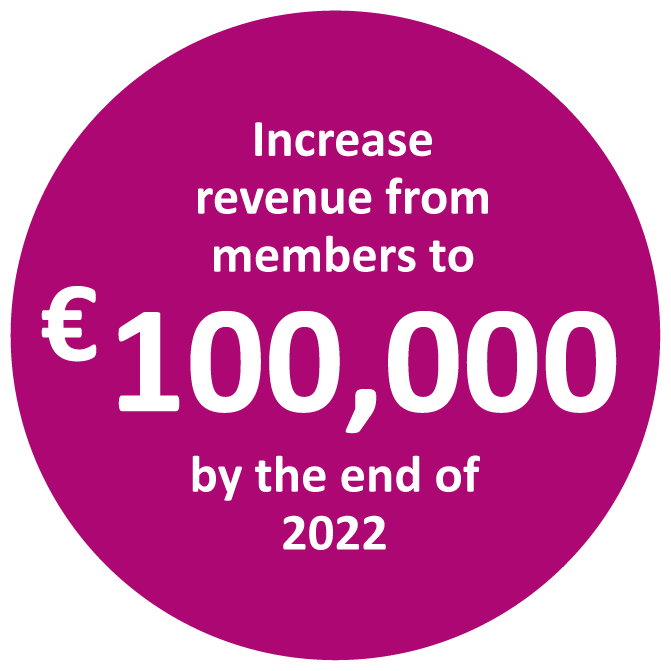
Figure 7: Fundraising Targets
Outcomes And Impact
SNI has evolved on the basis of one major premise: that the management of four distinct knowledge pathways combined with network development will yield causal outcomes where:
- a network of SRHR CoPs is operational, enabling members and strategic partners to connect, discuss and share, translate and co-create SRHR knowledge;
- these CoPs are empowered and sustainable
- policymakers, practitioners and researchers have better access to SRHR information and knowledge
- researchers address scientifically, politically and practically relevant knowledge gaps in SRHR
- actual and effective learning is taking place between and in countries among researchers, policymakers and practitioners
- knowledge is applied to evidence-informed SRHR programmes, policies and practice
With these resulting outcomes, SNI will achieve its goal of contributing to the improvement of SRHR by promoting evidence-based knowledge that is applied to SRHR policies and practice. This premise has been visualised in our ToC
Between 2013 and 2019, SNI, its country hubs and members have worked tirelessly to generate, share, translate and promote the use of evidence-based knowledge with all relevant actors in the SRHR community. The following chapter will assess to what extent the work of SNI has been successful in achieving its outcomes thus far, and how impactful its work has been for SNI members. It will highlight and delve into the experiences of Share-Net members over the last seven years. To collect data for this chapter, interviews and focus group discussions were conducted in each Share-Net country hub.
The structure of this chapter will follow SNI's six envisaged outcomes, as stated in the ToC, and each outcome will be explored and reflected on. SNI's outcomes can be divided into two overarching areas: network development outcomes and knowledge management outcomes.
Network development outcomes
Under the overarching area of network development, there are two important outcomes - one short-term and one long-term - which are intrinsically interlinked to CoPs. These network development outcomes support the knowledge pathways of SNI and are ultimately responsible for strengthening the Share-Net community.
3.1.1. Outcome 1:
A network of SRHR CoPs is operational, enabling members and strategic partners to connect, discuss and share, translate and co-create SRHR knowledge
CoPs are at the heart of SNI. They operate in each country hub, are context-specific and create common ground for members while inspiring and engaging in dialogues and activities. Under this networking outcome, SNI acts as a matchmaker, promoting interactions between the members of the CoPs and encouraging them to share knowledge which facilitates learning and, ultimately, to use this knowledge to improve policy and practice. While CoPs have proved successful in each country hub, the number of CoPs established and their thematic areas differ by country, highlighting the specific areas of interest of the members in each hub and the ability of Share-Net to adapt to different contexts.
Connecting is an essential aspect of CoPs, as they bring together practitioners, researchers, policymakers and young people to create a dynamic knowledge network where experiences and knowledge are shared. A member from SN-BD explained that a 'CoP brings together like-minded people who are working across the board on SRHR. Through the Share-Net platform, we can advocate for SRHR through social media and get to know what and how our projects and actors are working for SRHR.'Indeed, between 2013 and 2019, all Share-Net CoPs have been refining their roles as convening powers that bring together like-minded people. SN-BD's CoP on adolescent and youth SRHR includes a large number of student members and also NGO members. This CoP strengthens the relationship between practitioners and students, which provides students with knowledge on what is happening at a professional level in the SRHR world, and the students' involvement highlights new and interesting areas of research for practitioners. SN-JO and SN-NL have similar CoPs which are dedicated to the inclusion of young researchers and students in the SRHR community. A SN-BD youth activist member stated that "Share-Net strongly breaks the taboos around sexuality through knowledge-sharing and active engagement of the students through a discussion on SRHR in the youth hub." For the Share-Net hubs, the inclusion of young people in the network is essential.
"Share-Net strongly breaks the taboos around sexuality through knowledge-sharing and active engagement of the students through a discussion on SRHR in the youth hub."
Share-Net Bangladesh member
Of course, the Share-Net network works hard to connect important SRHR actors at all levels. SN-BD's CoPs have been successful in linking NGOs and researchers, as a lot of scoping work is first required for different SRHR topics in Burundi. The Burundian CoP on youth-focused programming has been especially successful in linking local actors and exchanging knowledge. In addition, this CoP created a safe place for discussing the challenges faced by adolescents and youth with regards to their SRHR in Burundi. CoPs in Jordan excel at connecting researchers and knowledge institutes with high-level policymakers. SN-JO's CoP on child marriage is especially highly regarded, as it includes a wide range of stakeholders, including prominent political figures, who came together to create the study, policy brief and national action plan on child marriage.
The policy brief and national action plan were approved by the Cabinet and the Prime Minister. While policymakers do participate in some country hubs, such as in Jordan and Burundi, their presence and engagement is something which is highly sought after and is an area which can be improved. In addition to being a critical tool for networking, CoPs have been crucial for facilitating the sharing of knowledge and experience. One SN-JO member expressed the view that "the establishment of CoPs was very helpful and created a highly professional platform for discussion and networking."
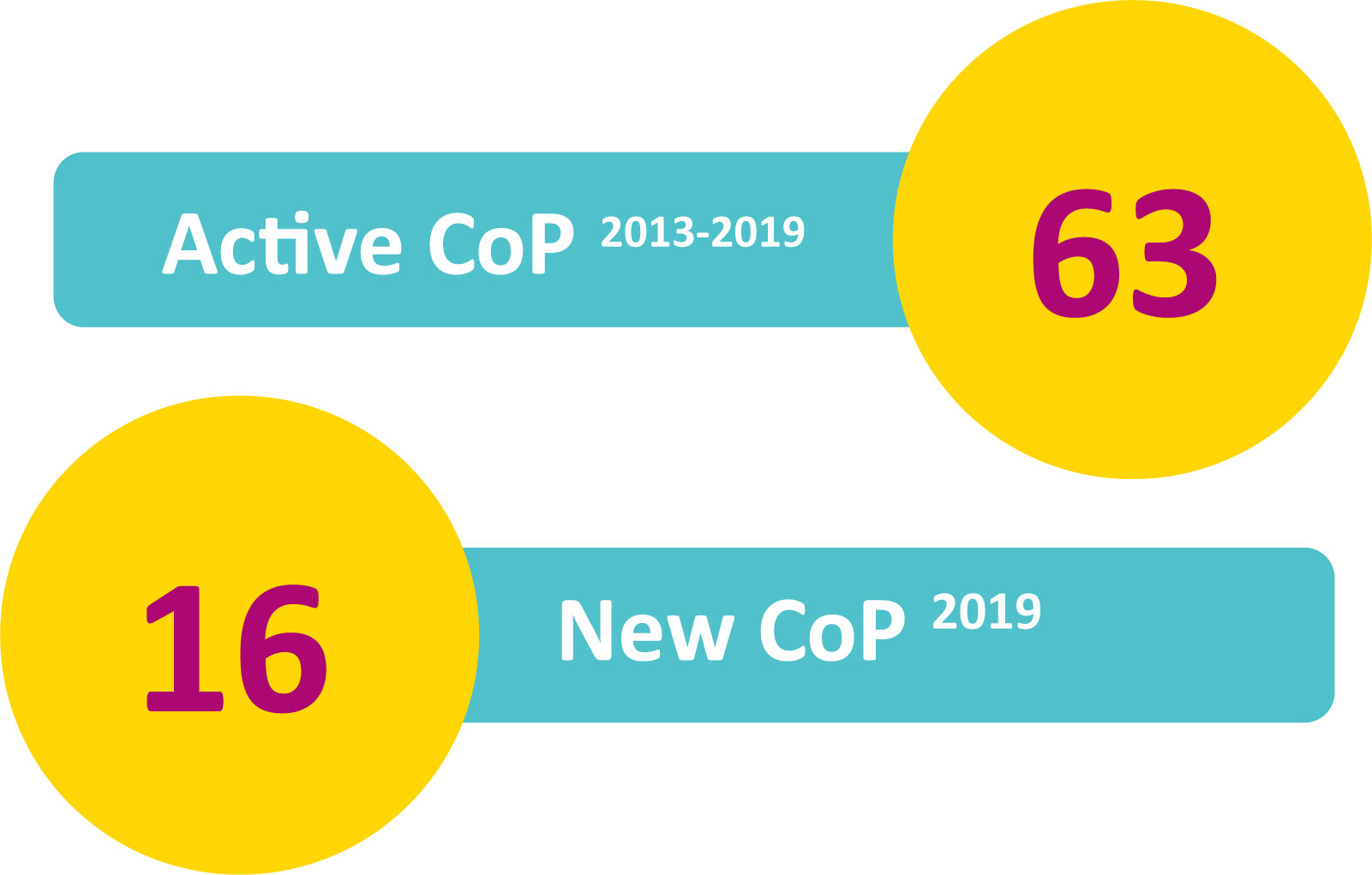
Through frequent CoP meetings and thematic events, CoP members not only connect and network but also share knowledge and learn from each other. In SN-NL, the CoPs on infertility, contraception and abortion, and comprehensive sexuality education, to name a few, were all hailed as effective learning and sharing spaces for SN-NL members. One SN-NL member stated that through the CoP, they could share their concerns about funding for contraception and abortion. They discussed in particular what to do about the Global Gag Rule, and these discussions resulted in advocacy with the Dutch government and raising awareness locally and internationally. One member of SN-BDI described CoPs as "important instruments because it is the experts who work in the same field who meet and exchange views. This is how we found that the subject of infertility was under-explored and that we had to talk about it."" Across all country hubs, it is evident that CoPs have played an imperative role in sharing, translating and generating knowledge as well as connecting different SRHR actors with each other. It is clear that the structure of CoPs works well and that they are successful in deepening the knowledge of SNI members and creating synergies between local, national and international actors in a meaningful way which enhances the SRHR community.
3.1.2. Outcome 2:
National, sustainable and empowered CoPs on SRHR are established and operational
While the dynamic of the existing CoPs is widely appreciated by SNI members, the functionality of CoPs differs across the country hubs. In SN-BD and SN-NL, CoPs are driven by members, and members can establish new CoPs. However, in SN-JO and SN-BDI, CoPs are specifically established at the behest of the secretariat, and in the case of Burundi, CoP activities, such as meetings, require approval at government level. In these SNI hubs, CoPs are often established as a means to an end. In this regard, the secretariats invite members to participate in a CoP with the intention of reaching a specific outcome – perhaps the creation of a concrete knowledge product or the organisation of a workshop. Therefore, the meaning of 'sustainable' and 'empowered' differs across country contexts.
For SN-NL and SN-BD, when a CoP is established, it is important that it can support itself and is member-led. Having sustained and empowered, member-led CoPs indicates that the CoP is useful for Share-Net members and that they are benefiting from its existence. An example of an SN-NL CoP which we consider to have really achieved this outcome is the CoP on infertility. It was established in 2017 and since then has proceeded to play a role nationally and internationally. The members of this CoP represent SNI at international conferences, such as the Women Deliver conference in Vancouver, where they had a concurrent session titled 'Women Deliver Or Not: Breaking the Silence on (In)fertility', organised jointly with the World Health Organization and the Centre for Reproductive Rights. This CoP generates its own agenda and work plan and has very dedicated members who independently work together on different research tasks and activities. Such sustainable and empowered CoPs are also active in SN-BD. SHIRIM resulted in the establishment of a successful CoP on child marriage which has been very active since 2017 and has been successful in coordinating and networking with various stakeholders in Bangladesh to address issues related to child marriage.
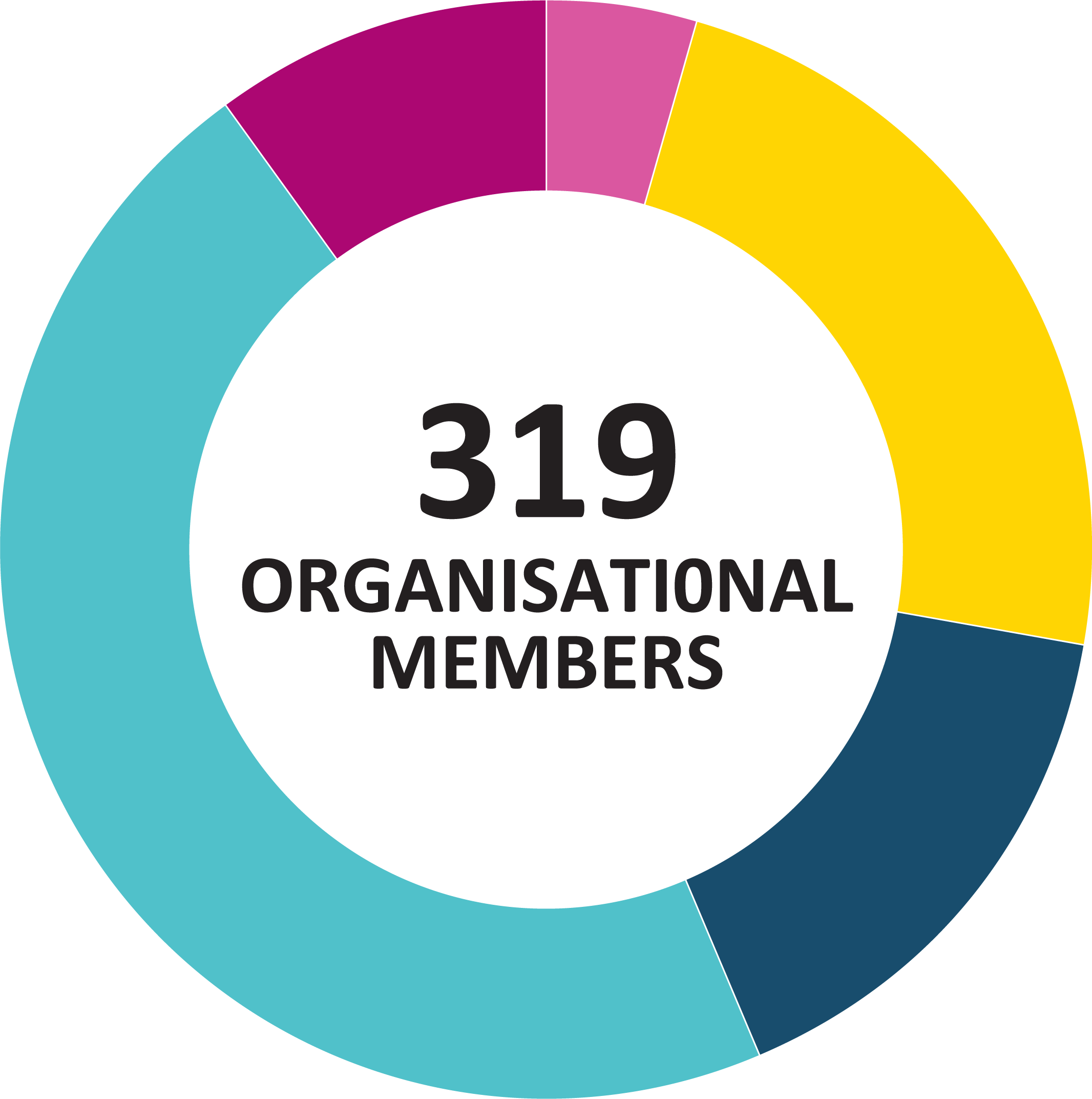
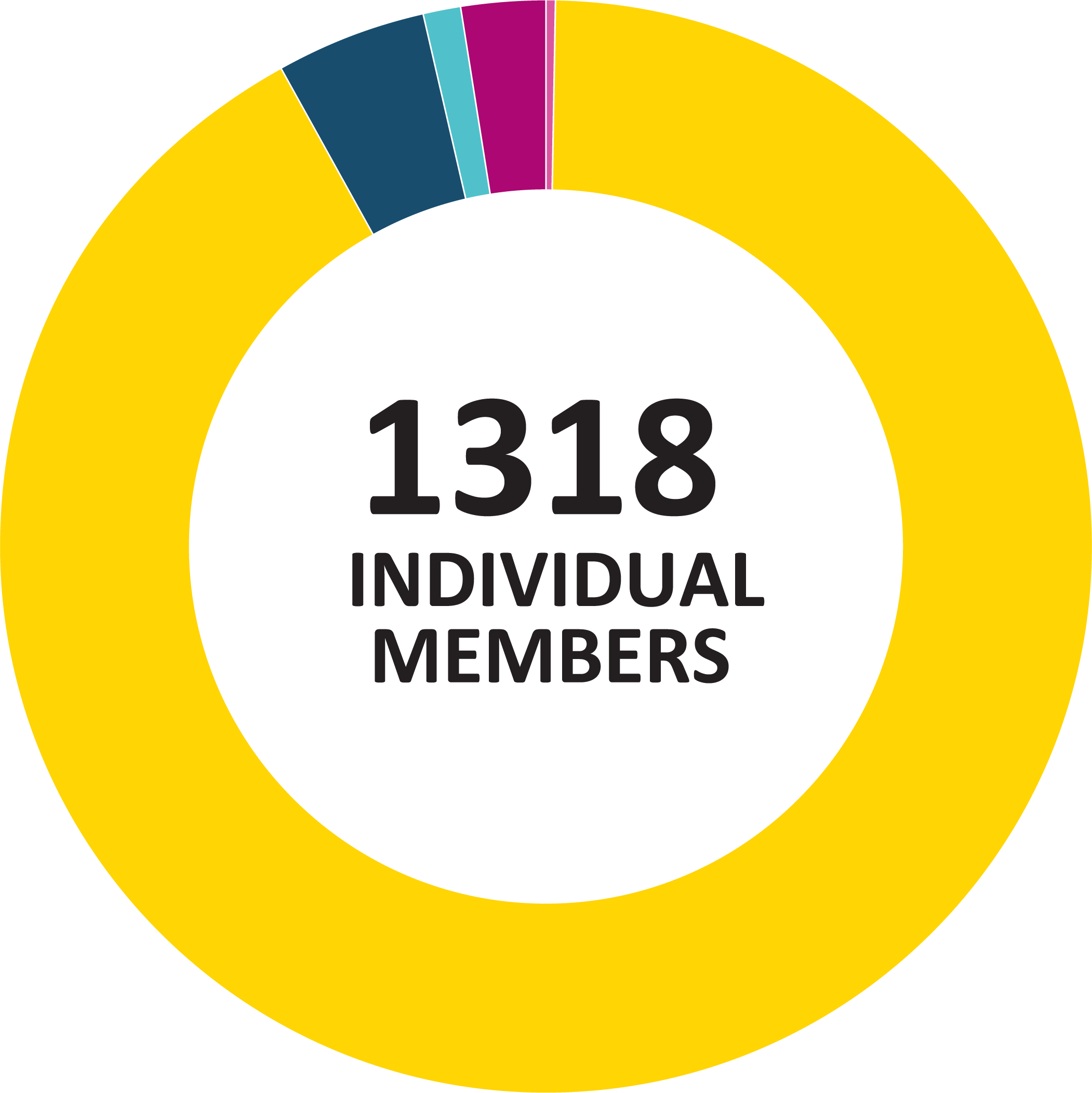
Knowledge management outcomes
3.2.1. Outcome 1:
Policymakers, practitioners and researchers have better access to information and knowledge on SRHR
Across all country hubs, one thing is unanimous: SNI has been incredibly successful in providing better access to information and knowledge on SRHR. SNI has been successful in this endeavour due to a number of knowledge-sharing and knowledge translation activities, such as organising free thematic meetings, disseminating frequent newsletters, establishing all Share-Net websites as open-access databases and setting up thematic CoPs. While all activities have been useful in providing better access to SRHR knowledge, different activities were of more benefit to different country hubs.
Newsletters and websites
One of SNI's most efficient and effective ways of ensuring that the SRHR community has better access to information and knowledge on SRHR is by using online tools. The newsletters, websites and social media accounts of all SNI hubs are used as tools to share new research, SRHR news and events and provide frequent updates. The newsletters published by each hub provide its members with local updates while also providing international news items and snapshots. For SN-NL members, the newsletter was perceived to be the most useful online tool provided by SN-NL, as it “brings the news and announcements quicker”. As one member explained, "The regular newsletter, including information and the meetings in preparation for international meetings such as Women Deliver and the AIDS conference, have been very helpful."
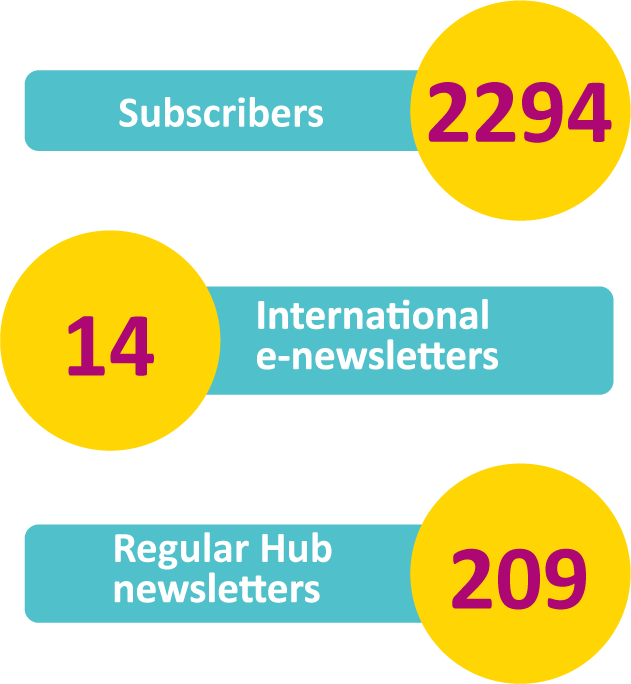
The use of the Share-Net websites as free open-access databases has proved hugely successful in increasing access to SRHR knowledge for SNI members as well as the wider community. The consistent updating of the websites and dedication to sharing the latest research and news has resulted in an accumulated wealth of information that is easily navigable. According to SN-BD members, "the online platform has a lot of info, and it is also very helpful, as it is clearing a lot of unanswered questions. It has created access to information" and "through its website and other media platforms, Share-Net created a platform of knowledge in the area of SRHR that enables ... access [to] materials and documents relevant to my work as an expert in SRHR." Besides being free and readily available, one feature which makes the websites particularly beneficial is that they are all in English, but for SN-JO and SN-BDI they also exist in Arabic and French, respectively, making the content available to both international and local audiences. One SN-JO member considers it "one of the main sites to access information, especially in the Arabic language".
However, one factor which of course hinders online access to information is an insecure Internet connection. SN-BDI members stated that while SNI's online resources were beneficial for researchers, they were not accessible for everyone. Therefore, more creative solutions are needed to overcome this obstacle. Overall, it is clear that not only is SNI's use of online tools as a means to make SRHR knowledge more widely available efficient and widely appreciated, but it also has had a direct impact on the work of SNI members. Members from different hubs say that they actively use the information gathered from these online sources in their work; even more, they recommend the Share-Net databases as reliable and accurate sources of information to others.

Knowledge fair
SN-BD started organising a knowledge fair on SRHR in 2017. Since then, it has successfully organised four SRHR knowledge fairs where SRHR practitioners have participated and shared their valuable knowledge. The event aims to promote dialogue on SRHR through four different activities: scientific presentations, plenary sessions, poster presentations and a youth hub. This is the only event in Bangladesh that offers researchers, policymakers, practitioners, donors, change-makers and the media an opportunity to come together under one roof to exchange knowledge on SRHR, thus improving access to this information. SN-BD members have leveraged this platform to promote the use of knowledge to SRHR practitioners, the government and donor agencies in Bangladesh. While the event is for the members and by the members, it recognises the importance of involving young people and their access to information in SRHR. Thus, the youth hub programme was introduced in 2018.
The youth hub is a part of the knowledge fair dedicated to young people. Its purpose is to give young people a platform to come together, discuss, find solutions and express their demands with evidence-informed knowledge for a society where everybody is treated equally. It resulted in a safe space for young people to present their demands to SRHR practitioners. One of the SN-BD's members stated that "the knowledge fair has successfully created an active engagement through the youth hub, promoting SRHR, a networking opportunity and effective learning regarding other initiatives". At the 2018 knowledge fair, youth leaders came together to develop the Youth Declaration. This was followed by developing and sharing a Youth Action Plan in 2019 to ensure that young people's demands are shared and available to members.
Thematic meetings and round tables
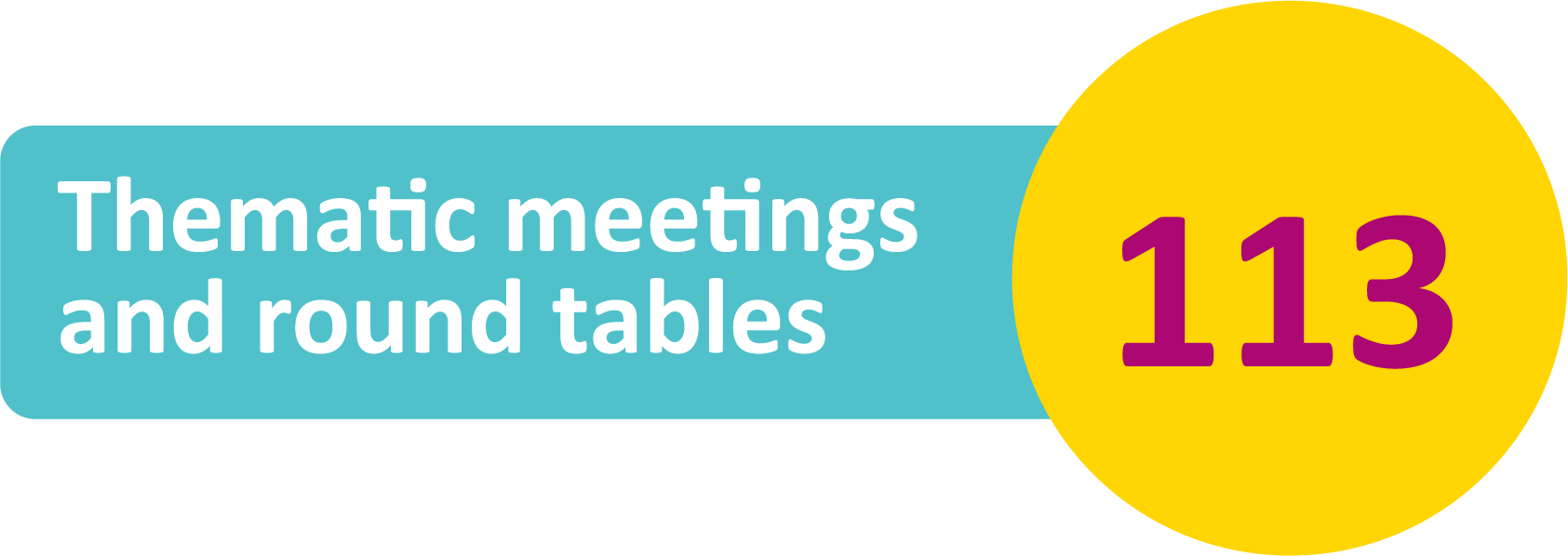
Thematic events and round tables are some of the primary ways in which SNI shares knowledge and networks. Usually the result of the work of a CoP, thematic events and round tables are organised by Share-Net members and are free for all to attend. This leads to thematic events being hugely popular for both SNI members and the
wider SRHR community, and results in a diverse audience and often very interesting and engaging dialogues. According to one SN-NL member, "A good thing about Share-Net is that it organises meetings around themes that are relevant and topical. It is a very good opportunity to meet new people, gain knowledge and discuss these themes." In each country hub, Share-Net members hailed the success of different thematic events, and they were a constant factor appearing throughout our interviews with SNI members. Thematic events are not only a great tool for networking and sharing knowledge, but they often lead to the creation of concrete knowledge products which are used by the Share-Net and the wider SRHR community. Between 2013 and 2019, there have been many SNI thematic meetings; below is a snapshot of some of the most impactful from over the years.
Share-Net Bangladesh
In November 2018, as part of the 16 days of activism against gender-based violence, SN-BD organised a meeting on ‘The Situation of Sexual Harassment in Bangladesh’ at the Embassy of the Kingdom of the Netherlands in Dhaka. A total of 24 members from 18 organisations were present at the meeting to share their work in the SRHR field and discuss the barriers or gaps they have in terms of effectively carrying out their work. At the meeting, Hans Angenent, First Secretary/Controller, Embassy of the Kingdom of the Netherlands, presented a newly reformed policy guideline on sexual harassment in the workplace, developed by the MoFA. SN-BD shared the preliminary findings of a desk review on sexual harassment in Bangladesh during this meeting. The desk review was conducted by SN-BD as part of its knowledge generation activity. The feedback provided during the meeting allowed SN-BD to update the review. The meeting also shed light on the power of national advocacy campaigns on the issue, while the chief guest, Dr. Abdul Hossain, concluded the session by saying: "There should be a collaborative effort from all the organisations who are working on sexual harassment in Bangladesh."
Share-Net Burundi
In February 2018, the Ministry of Public Health and the Fight Against AIDS, through its National Programme for Reproductive Health (Programme National de Santé de la Reproduction), collaborated with SN-BDI to organise a learning session on the collaborative approach methodology which was part of SHIRIM. SN-BDI focused on the reduction of adolescent pregnancy. The Ministry of Public Health has made it a priority to promote the SRHR of adolescents and young people, according to Dr. Diomede Ndayisenga, who represented the Minister of Health and the Fight Against AIDS. The panellists made presentations on the state of teenage pregnancy in Burundi and the challenge of translating and using research results. To be able to generate, disseminate and apply knowledge on teenage pregnancy, a proposal for a road map was made. This road map was based on the outcomes of a mind-mapping exercise on adolescent pregnancy and the change package with different strategies to facilitate knowledge translation. According to one SN-BDI member, "It was an opportunity to share information. We have seen that it is necessary for communities to take into account teenage pregnancies. After the round table, there was a recommendation to set up a technical team to prepare a concept note on adolescent pregnancies, and this was shared."
Share-Net Jordan
In March 2018, the Higher Population Council, in cooperation with the Higher Council for the Affairs of Persons with Disabilities, held a meeting on the reproductive health of persons with disabilities. This meeting was attended by national governments and reflected on the current reproductive health services offered to persons with disabilities, presented recommendations for improving these services and identified the outline of Jordan's position paper on the issue. The Higher Population Council and the Higher Council for the Affairs of Persons with Disabilities used the results of this meeting as inputs to develop the outline of Jordan’s position paper on the SRHR of persons with disabilities, which was later embedded in the National Reproductive Health Strategy for 2019–2023. An SN-JO member stated in their interview that they often used the knowledge which resulted from the Higher Council for the Rights of Persons with Disabilities think tank in their work, and that the recommendations recently embedded in the national policy on disabilities were one of SN-JO's most notable achievements.
Share-Net Netherlands
In November 2017, SN-NL hosted its first round table on infertility. At the meeting, a select group of experts, policymakers and programme officers in different positions at different organisations, such as the World Health Organization, the Infertility Working Group of the European Society for Human Reproduction and Embryology, the Netherlands Association for Obstetrics and Gynaecology and the International Federation of Gynecology and Obstetrics, specialist NGOs and the Dutch MoFA gathered to discuss how prevention and treatment, reduction of stigma, social pressure and exclusion - all related to infertility - could be included on women’s health and SRHR agendas. This impactful meeting kick-started the SN-NL CoP on infertility and SN-NL’s dedication to addressing infertility and fighting for its prioritisation.
In 2016, SN-NL organised a week-long Youth Week meeting to discuss comprehensive sexuality education and youth-friendly health services. The objective of the Youth Week was to link comprehensive sexuality education and youth-friendly health services, including on gender, youth participation and the Sustainable Development Goals. There were 42 national and international guest speakers and 260 participants from over 40 organisations and universities at the meeting. The event provided an opportunity for international SRHR practitioners to learn from each other. One of the members reflected in an interview that this event not only allowed them to connect with the NGOs, universities and students but also ensured that the diverse range of knowledge on comprehensive sexuality education and youth-friendly health services became more widely available.
3.2.2 Outcome 2:
Researchers address scientifically, politically and practically relevant knowledge gaps in SRHR
Armed with knowledge gained through SNI's events and online sources and combined with their own professional experience, researchers, policymakers and practitioners become more aware of knowledge gaps which exist in current SRHR research. To support and encourage researchers to address scientifically, politically and practically relevant knowledge gaps in SRHR, SNI has embarked on a number of different research initiatives since 2013. By collaborating with NWO-WOTRO and establishing the Small Grants Facility, SNI has fostered an environment in which researchers can apply for funding to address research gaps. Furthermore, relevant knowledge gaps are also addressed through the work of CoPs and through the work created throughout the CCC.
NWO-WOTRO
In 2013, the MoFA initiated collaboration between SNI and NWO-WOTRO to work on research and innovation. The priority areas of the research projects were identified by SNI through scoping missions and agenda-setting exercises in each country. Based on the findings of those activities, calls for proposals were developed by NWO-WOTRO with input from SNI. The research projects were selected through a competitive process. In total, five research projects were awarded in Bangladesh, and four in Burundi. Later, in 2014, Jordan was selected as the third country to establish a Share-Net country hub, and in 2016, four research projects were awarded in Jordan under the NWO-WOTRO research grant facility. More in-depth information about the research funded by NWO-WOTRO can be found here.
The NWO-WOTRO research programme is currently undergoing an external evaluation. The evaluation is expected to provide information on the efficiency, effectiveness and relevance of the programme – notably the (potential) contribution of the research findings to policy and practice in the respective countries. It is, therefore, difficult to say yet whether the NWO-WOTRO research programme on SRHR has contributed to the long-term outcomes of SNI. It is, however, safe to say that NWO-WOTRO has given researchers the opportunity to address relevant knowledge gaps in SRHR by providing funding opportunities for research projects based on scoping missions and agenda-setting exercises conducted by SNI. Additionally, NWO-WOTRO, SNI and the country hubs together organised kick-off workshops and dissemination meetings in Bangladesh, Burundi and Jordan in which societal stakeholders were engaged.
Small grants
SNI introduced a Small Grants Facility in October 2014, aiming to generate and translate knowledge. Since then, 41 projects have been awarded to its members. These projects include qualitative research studies, programme evaluations, awareness-raising activities, development of infographics for policymakers, films for broader dissemination and discussion, policy briefs and others. A wide range of topics have been covered, such as youth SRHR, family planning services, performance-based financing, SRHR in people with disabilities, comprehensive sexuality education, menstrual hygiene, mainstreaming sexual and gender diversity, engagement of the private sector in SRHR, LGBT issues, mental health and many more.
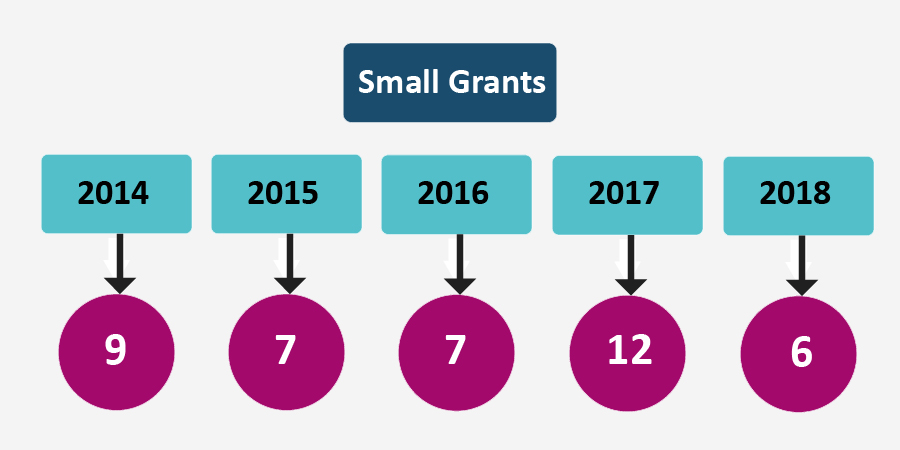
Figure 8: Number of small grants awarded 2014 - 2018
'To Porn, Or Not to Porn? That is the Question'
A digital comprehensive sexuality education product for adolescents has been developed in Ethiopia. Mock-ups of four prototypes have been tested, and the most popular prototype was the 'University of Sex'. Users wanted to speak to someone who could answer their questions with authority and who had the education necessary to do so. They also liked the prospect of interacting with a real person. The digital platform has been developed and implemented. As an extra outcome, it was integrated with the most popular message apps in Ethiopia so that young people who may not have the opportunity to attend university can learn from the digital one.
'From research to practice: the value of five years of maternal health research collaboration in Ghana'
This research shows that there is a considerable dissemination gap regarding maternal health among stakeholders in the research community, participants and their families, NGOs, policymakers and practitioners. A video and poster exhibition, dissemination meetings, social media and the book CarryCare have all been developed to illustrate the importance of research and capacity-building within the field of maternal health in Ghana. These tools are essential for the support and value of maternal health research in Ghana and the Netherlands.
Figure 9: Examples of projects awarded small grants
The research topics supported by the Small Grants Facility cover a wide range of SRHR themes, and in countries such as Jordan, this presents the opportunity to conduct research on topics which are considered taboo. One member reflects that "through Share-Net help now we can investigate all our problems and challenges with SRHR in a scientific way". Thus, the Small Grants Facility has encouraged research which not only fills a knowledge gap but which examines topics that are considered culturally sensitive. Addressing culturally sensitive issues can result in the wonderful impact of normalising taboo topics. One SN-BDI member explained their personal experience of this and how knowledge generated and shared by SNI changed their views on adolescent SRHR: "Before, the SRHR of adolescents and young people seemed to me a shocking term. Then after I visited the content especially regarding rights, it's very interesting. I was wondering how adolescents and young people have sexual and reproductive rights in a country where sex outside of marriage is prohibited. I learned that SRHR has a place in all of the country's policy documents."
Furthermore, research generated through the Small Grants Facility has been used by members to influence their work. An example was given by an SN-JO member, who explained that "Share-Net International approved a grant to fund a research project proposed by the University of Jordan to develop a national action plan for integrating sexual and reproductive health concepts in Jordanian curricula. This research supported the updating of the national strategy for sexual and reproductive health, and integrating these topics and concepts into the Jordanian university-level curricula." In other hubs, such as SN-NL and SN-BD, dissemination meetings and workshops were held after the development stage of the small grants to share the research and knowledge products developed with Share-Net members. Members feel that the SNI small grants have been successful in addressing research gaps; therefore, it was assumed that members have used the research presented at these meetings to influence their own work. However, the extent to which members use knowledge created through the small grants has not been specifically measured yet. This can be included in SNI's M&E framework to further measure SNI’s success in this outcome area.
3.2.3 Outcome 3:
Actual and effective learning is taking place in and between countries among policymakers, practitioners and researchers
There are many ways in which actual and effective learning can take place. Thematic meetings, SNI’s online resources and active CoPs are all tools which can stimulate effective learning. However, SNI is also responsible for larger activities which enable actual and effective learning on a larger scale, in and between countries. In the course of the past seven years, SNI has developed two specific innovations that are unique to the network. Both SHIRIM and the CCC have played a vital role in facilitating and fostering effective learning through new ways of structured knowledge generation, sharing, translation and promotion of use. Additionally, although not included in the ToC, Share-Net plays a role as a global platform on SRHR which allows policymakers, practitioners and researchers from all over the world to connect, network and learn from each other. In the following, these three aspects of Share-Net will be explained.
Share-Net International Rapid Improvement Model
In 2017, the external evaluation of SNI concluded that the organisation could play a more active role in facilitating knowledge exchange and learning among the country platforms and pay more attention to the pathways of knowledge translation and use. The sharing of learning across different fora (disciplines, contexts, discourse) is encouraged through knowledge platforms (Lammers & Winter, 2017), but little is known about which methods can support cross-platform and cross-country learning (Haas & van der Kwaak, 2017). As a response, SHIRIM was developed. SHIRIM focuses on experimenting with strategies for translating knowledge into policy and practice and sharing experiences and lessons learned across the Share-Net country hubs. It was also envisaged to strengthen linkages and collaborations between the country hubs and SNI.
SHIRIM followed a clear structure of learning sessions and action periods based on the collaborative approach developed by the Breakthrough Series of the Institute of Healthcare Improvement in which the Plan-Do-Study-Act (PDSA) cycle was used. In total there were four rounds of practical learning sessions and action periods. In each action period, the country hubs designed and developed change packages to test those changes in their setting, and later shared the outputs with the other country hubs. SHIRIM allowed the country hubs to translate knowledge on SRHR issues systematically, resulting in the development of knowledge products. Child marriage (for SN-NL, SN-BD and SN-JO) and teenage pregnancy (for SN-BDI) were selected as the most urgent problems.
By the end of the SHIRIM process, the capacity of participants was strengthened in terms of implementing knowledge translation strategies, with effective learning between and among participants playing a prominent role. Following SHIRIM, the previous Share-Net Bangladesh Coordinator stated that "the Rapid Improvement Model (SHIRIM) is a really effective learning model for Share-Net Bangladesh. Throughout the year we addressed the subject several times and it was very focused. It was learning through sharing, and we had time to reflect between sessions, and then we would share and learn together again." Furthermore, an SN-NL member who participated in SHIRIM said that they later applied the knowledge translation skills which they learned from SHIRIM to the CCC. Although the SHIRIM process is celebrated as being a successful way to stimulate effective learning in and between countries, one SN-BDI member highlighted that the complexity of the model means that SHIRIM is not easily understandable or accessible to everyone: "it was conducted as an academic model... the smaller organisations did not understand everything. It had to be explained using locally adapted language." Perhaps to encourage effective learning to its fullest, more creative methods need to be included in the SHIRIM process to overcome language barriers and differences in the level of academic, technical and writing skills.
Co-Creation Conference
Over recent years SNI has been placing greater focus on the translation of knowledge and the use of these products within the knowledge management cycle. SNI has developed a number of innovations in this regard. The SNI CCC on SRHR is one of the knowledge translation strategies, piloted for this purpose in October 2019.
The first edition of the CCC was titled ‘Engaging in Knowledge Translation Together’. A total of 90 participants from all around the world came together at the three-day event in Amsterdam and engaged in co-creation workshops on two tracks.
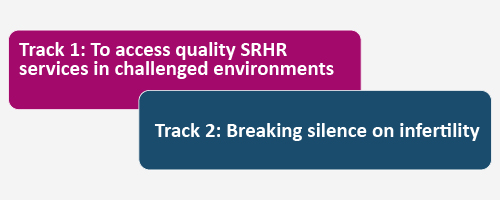
Figure 10: Two thematic tracks of the Co-Creation Conference
The conference aimed to translate knowledge into products that SNI members and other participants could use to improve policy and practice on the aforementioned SRHR themes. In addition to knowledge translation, which will be highlighted in Chapter 3.2.4, the CCC offers participants the opportunity to learn, exchange and gain experience in knowledge translation methodologies for use in practice. Additionally, it offers participants an excellent networking opportunity. Both opportunities are reflected by participants in the first CCC.
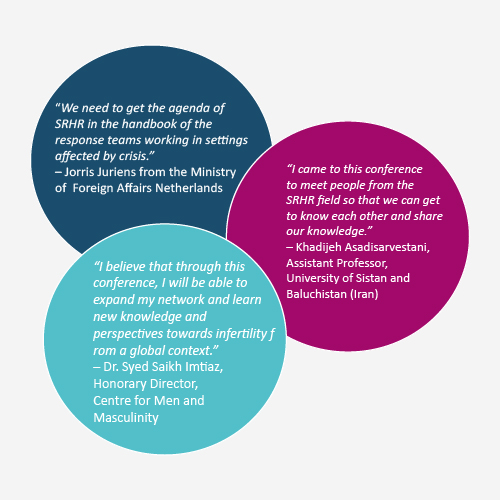
Figure 11: Participants’ experience of the conference
During the in-depth interviews and focus group discussions, the CCC was mentioned as an effective way of learning from other Share-Net members, policymakers, researchers and practitioners. As one SN-NL member explains, "It was beneficial to also have people from different contexts and organisations. The CCC was a great opportunity to have people tell you what is practical and useful in their work." A member of SN-BDI added: "I was able to broaden my knowledge on certain concepts, acquired through sharing of information with the team." These quotes show that the CCC facilitated active and effective learning between Share-Net members from the different country hubs and from different backgrounds.
Share-Net as a global platform
One aspect that is not included in the ToC but that is undeniable in promoting actual and effective learning is Share-Net’s function as a global platform. By connecting SRHR actors from across the globe, SNI creates "a platform where organisations/individuals can learn from one another and connect with the global platform". This allows Share-Net’s country hubs to highlight their work internationally, which not only increases knowledge-sharing but also creates possible partnership opportunities. One SN-BD member commented that "Share-Net creates an opportunity to be part of global conversation. Through Share-Net, I always get a snapshot of SRHR work at national level and discussions at global level." SNI's global platform creates more synergies within the SRHR community and also provides a space for small local actors to connect with larger international actors. It also creates opportunities to engage in international activities with organisations and actors from different countries.
3.2.4 Outcome 4:
Knowledge is applied to evidence-informed SRHR programmes, policies and practices.
SNI's last target outcome is really the epitome of what SNI strives to achieve, and all other outcomes are building blocks which contribute to this final long-term outcome. Aspects of this outcome include: 'evidence-informed policies and practices are used in line with the actual and context specific SRHR needs of individuals, and take their perspectives and rights into account, established CoPs are able to agree on common values and similar goals with regard to SRHR and finally, improved SRHR knowledge of policymakers, practitioners and researchers leads to better SRHR research, policy and practice such as societally relevant research and use of evidence-informed laws, policies and programmes'. All Share-Net activities – from CoP meetings, round tables and newsletters to SHIRIM and the CCC – aim to promote the use of evidence-based knowledge to influence SRHR policies, programmes and practices.
Co-Creation Conference
The first CCC resulted in the development of 18 ideas that led to five finalised knowledge products for two different thematic tracks. These knowledge products included film scenarios for informing policymakers, policy briefs, statements, communication materials for the press, questions and answers for the general public about a specific topic and many others. The key feature was that existing evidence was translated into products to help change policy and practice in SRHR. Currently the five finalised knowledge products are under further development with funding from a small grant and will be disseminated and promoted during the second half of 2020.
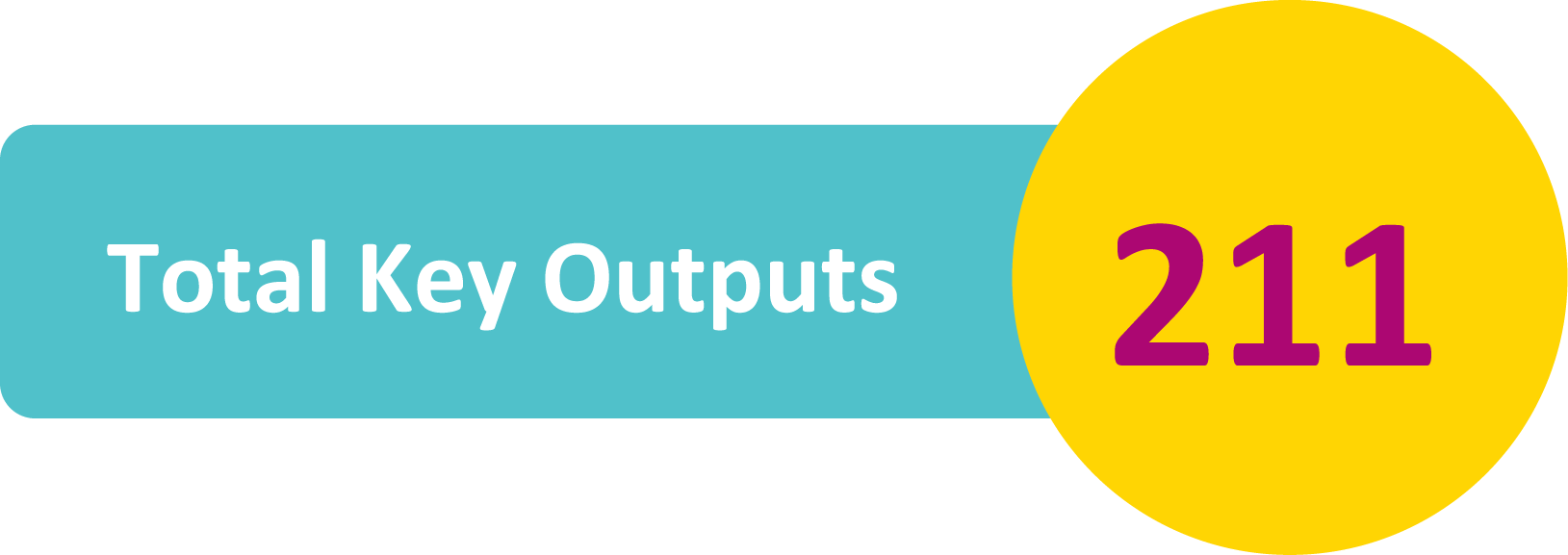
In addition to the development of these knowledge products, the CCC promoted the uptake of knowledge in SRHR programmes, policies and practice through the development and presentation of narrative reviews and evidence briefs on infertility and SRHR in challenged environments. The narrative review on infertility was especially well received, as reflected in Figure below.
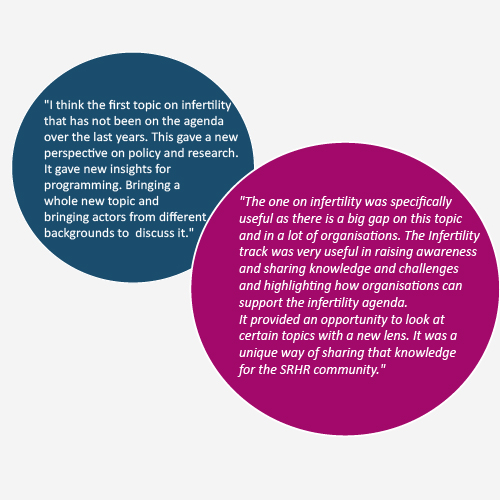
Figure 12: Participants’ reflections on the CCC
Both the narrative reviews and the knowledge products created during and after the CCC thus promote the uptake of knowledge and its application in SRHR programmes, policy and practice. Since the CCC was only organised last year, we are not yet able to determine whether these knowledge products have led or will lead to tangible changes in policy and practice.
SHIRIM
SHIRIM intrinsically promotes effective learning, knowledge-sharing and networking between the country hubs and at national level between their members. It is primarily geared towards developing and trying out knowledge translation strategies to stimulate the application of knowledge to improve policy and practice in the field of SRHR. The following examples show how SHIRIM led to changes in SRHR policy and practice.
SN-NL worked together with Rutgers Indonesia as part of a large five-year YES I DO Alliance programme on reducing child marriage, teenage pregnancy and female genital mutilation in Indonesia. As a specific theme, they identified the harmful interpretation of the culture of Merariq (‘elopement’), which supports the ‘kidnapping’ of young girls and influences the occurrence of child marriage and a high divorce rate. Through SHIRIM, the local government policy to prevent child marriage was influenced by including a guideline on Merariq to avoid misinterpretation of this local cultural practice. In Jordan, a national action plan to prevent child marriage was endorsed by the Cabinet, and changes in practice took place through the formation of multi-stakeholder partnerships that raised funding and implemented prevention programmes. In Bangladesh, practice changed by strengthening coordination for collaboration among stakeholders to prevent child marriage. In Burundi, the platform managed to engage government officials and other stakeholders in in-depth discussions on how to best address and monitor teenage pregnancy and formulate concrete recommendations.
| Share-Net Bangladesh | Share-Net Burundi | Share-Net Jordan | Share-Net Netherlands focusing on Indonesia |
|---|---|---|---|
|
Specific space has been created on the SN-BD website, and information is being shared on the platform. |
A mapping and analysis was conducted of stakeholders working on the issue of adolescent pregnancy in Burundi, and an open discussion with the government took place on a recently introduced policy that banned pregnant girls from attending school. A week after the learning session, the Ministry of Education of Burundi reversed this ban. The SN-BDI team assumes that the discussion during Learning Session 2 partly contributed to stopping this policy. |
A national action plan to end child marriage to provide a general framework for limiting the marriage of individuals under 18 and a manual for national interventions for the following five years were developed. The final action plan was successfully presented to the Prime Minister and endorsed by the Cabinet. |
After advocacy efforts by the district working group, the guideline on Merariq was included as an attachment in the Local Regulation of Child Marriage Prevention that had just been issued by the parliament. |
|
A booklet titled "Highlights of an initiative addressing Child Marriage in Bangladesh" was published and disseminated. |
A joint broadcasting initiative was organised in the form of a talk show on 12 radio stations to make the general public more aware of the risk of adolescent pregnancy. This activity was financially supported by an external funder. |
Meetings with potential donors were held to share the action plan for reducing child marriage in the country and the executive programme for 2018–2022 to explore funding opportunities for the different activities included in the plan. |
A syllabus for training on the Merariq guideline was developed, and subsequent training for 40 village heads was facilitated. Training of the village heads on the Merariq guideline was also integrated in the YES I DO programme. |
|
A round-table discussion to share the lessons learned in promoting the issue of child marriage in Bangladesh was organised. |
A desk review was performed on 'Known best interventions to reduce or prevent adolescent pregnancy in Burundi, Kenya, Ethiopia and the Demographic Republic of Congo', and a position paper was developed on 'How the joint programme should or might improve adolescent pregnancy in Burundi.' A round table was held and a report followed entitled 'Analysing the current mechanisms of monitoring adolescent pregnancies in Burundi' in collaboration with the National Reproductive Health Programme and the National Health Information Management System.. |
With external funds, a workshop on the mechanisms for integrating child marriage in the plans of civil society institutions and societies was held. Four multi-stakeholder partnerships raised their own funds and focused on awareness training in hospitals, research on economic and social drivers of child marriage, outreach to Syrian girls in schools, and an awareness campaign at 60 schools. |
The Department of Women Empowerment and Family Planning of West Lombok allocated a budget to expand the coverage of the training in the villages outside the five-year YES I DO programme. |
Table 1: Overview of the knowledge products developed by the country hubs
Small grants
The Small Grants Facility has provided opportunities to generate, translate and share knowledge. As the small grants are used to fund a wide range of research, they also influence SRHR programmes, policies and practice in a number of diverse ways. Although it has been difficult to measure the exact extent and ways in which knowledge generated by SNI has been used by policymakers, researchers and practitioners, the interviews conducted for this report revealed some exciting, concrete examples of some of the many ways in which Share-Net knowledge has been used.
The Embassy of the Netherlands in Jordan
A representative of the Dutch Embassy in Jordan explained that 'Research conducted by Share-Net helps feed into programmes of the Embassy' and that 'We use the research produced to feed in our policy discussions and programme design, whenever relevant.' This useful feedback shows that the research funded by SNI is actively being used in Jordan to inform policymakers and shape policies and programmes.
Jordanian researcher and lecturer
A researcher from Jordan was awarded a small grant to design a pamphlet about fathers' involvement in maternity care. As the researcher explained, 'The project aimed to open dialogue with national agencies and education experts in Jordan to develop a realistic action plan for integrating sexual and reproductive health concepts in academic curricula that is culturally-sensitive and based on to-be identified national priorities. This research supported the updating of the national strategy for sexual and reproductive health and integrating these topics and concepts in Jordanian university-level curricula.' This example shows how the research generated by the small grants was used to influence the content of university curricula.
Bangladeshi researcher and associate professor
An associate professor at Dhaka University received an SNI small grant to develop tools and instruments to promote SRHR in schools. He highlighted that the funding not only enabled effective advocacy and promotion of SRHR but also supported the scale-up of an initiative exploring government funding. He added, 'This is a perfect example of ways SNI acts as a bridging network to connect with potential government, international and local actors to unlock resources to promote SRHR.' This statement shows how small grants are not only generating, translating and promoting the use of knowledge but are also allowing grantees to bridge the network gaps with government and international and local SRHR practitioners to unlock resources.
Dutch gender consultant
A Dutch gender consultant stated that they use the knowledge shared on the SNI and SN-NL websites and newsletter to 'provoke further knowledge in [their] consultancies'. With this example, we see how knowledge shared by SNI is used to inform work and research on SRHR.
Conclusion
SNI aims to use its resources, network and sheer dedication to achieve one vital impact: evidence-informed policies, programmes and practices are used to contribute to improved SRHR, including HIV and AIDS, for everyone. Over the past seven years, SNI has evolved in a number of ways on its journey to achieve this impact. This chapter has explored the short-, intermediate- and long-term outcomes which SNI aims to bring about to achieve the goal of improving SRHR through evidence-informed policy, practice and programmes, and it has shown how the activities of Share-Net contribute to achieving this aim. Specifically, over the past three years, SNI has been providing a creative, innovative and comprehensive network to generate, share, translate and promote the use of new knowledge on SRHR. It is apparent from the data gathered from Share-Net members that there are areas for improvement though. However, through the lessons learned from the past seven years, SNI is continuously working to fill these gaps and is providing a platform which is making a difference in the work of policymakers, practitioners and researchers. SNI has shown that it is starting to achieve its desired impact and that with continued dedication from the secretariats, country hubs and members, it will only become more impactful and indispensable.
The Relationship With NWO-WOTRO
NWO-WOTRO is a Dutch research organisation that contributes to various scientific and innovation policies by financing and programming and, to a lesser extent, connecting, supporting and influencing research and science for global development programmes. Additionally, it monitors research on global issues with a focus on sustainable development and poverty reduction. NWO-WOTRO is also responsible for facilitating the academic research programmes which are related to the knowledge platforms commissioned by the MoFA. The latter allocated 6.1 million EURO to the academic research programme on SRHR. The relationship between Share-Net and NWO-WOTRO was built under this mandate.
The collaboration between NWO-WOTRO and Share-Net started in 2013, immediately after the MoFA designated KIT the host organisation for the knowledge platform on SRHR. The decision to place the responsibility for research outside Share-Net was made to realize a more objective neutral process of awarding academic research grants. The resulting NWO-WOTRO research programmes on SRHR for each Share-Net country hub aimed to "generate insights in and a better understanding of processes that determine and strengthen the sexual and reproductive health of people, as well as their ability to claim their sexual and reproductive rights" (NWO-WOTRO, n.d.). The programme strived to contribute to improving and innovating SRHR policies and practices, with a special focus on empowering young people and key populations, which varied in each call for proposals. Both the aim and mission of the NWO-WOTRO SRHR research programme were, therefore, well aligned with the vision and mission of SNI and the envisaged outcomes of Dutch SRHR policy.
A strength of the collaboration between NWO-WOTRO and SNI is that academic research was selected and funded through NWO-WOTRO, while Share-Net played an important role in setting the research agenda. The calls for proposals were based on the scoping missions and agenda-setting exercises that Share-Net and KIT carried out when setting up their country hubs in Bangladesh, Burundi and Jordan. Then there were successful in-country workshops informing the country stakeholders about the status and outcomes of the study in which the local hubs played a role.
Reflections on the collaboration show that NWO-WOTRO added value to the work of SNI and its hubs by identifying knowledge gaps in SRHR and financing the generation of new knowledge (Outcome 2), which in turn was used to influence policy and practice (Outcome 4). Additionally, it invested in knowledge-sharing meetings with the research consortia in Bangladesh, Burundi and Jordan. Mostly jointly organised with the respective Share-Net hubs, these meetings provided the opportunity for in-country learning, sharing of best practices and lessons learned, and stimulated the expansion of SRHR networks in the respective countries.
Besides these positive results of the collaboration between NWO-WOTRO and SNI and its hubs, some challenges can be listed regarding the relationship. A clear written description of the roles and responsibilities from all stakeholders was never established from the onset and therefor expectations were not always met. The absence of a Memorandum of Understanding (MoU), amongst others, resulted in a lack of structural communication between NWO-WOTRO, the SNI secretariat and each hub and joint planning was not done. Which in its turn resulted in unawareness of activities taking place in each country and/or the status of the research projects, while both could have benefited from each other's input.
Regarding the SRHR programme itself, the main limitation relates to the focus on knowledge generation, while little attention was given to its translation into usable knowledge products to influence the uptake of learning in policy and practice. In time this was solved by the creation of an academic programme called SURe where Share-Net Jordan participated in. The knowledge-sharing meetings related to the NWO-WOTRO research programmes mainly involved the research consortia of the respective countries, and this can be seen as a missed opportunity as added value of dialogues with other Share-Net members was hardly realized. However, the final conference for all research consortia which will be organised in summer 2020 by NWO-WOTRO in close collaboration with SNI, offers an opportunity to invite a large group of Share-Net members as well as address cross-country learning and further future uptake of the research findings.
To conclude, collaboration between NWO-WOTRO and SNI was successful in jointly setting up the calls, based on the agenda setting in each country, and in-country (kick-off) meetings. However, lessons learnt are that, firstly, roles and responsibilities should have been clearly set from the beginning. Second, Share-Net could have played an important role in sharing research findings within the wider SNI and SRHR community. Third, research findings could have been used to promote linking and learning between the different country hubs, which is one of SNI’s outcomes. These missed opportunities can be linked to the absence of clear agreements on roles and responsibilities and a lack of communication between all parties. Momentum to address these missed opportunities is offered during the final conference and will also be part of evaluation meetings with NWO-WOTRO.
LESSONS LEARNED
"It is a great opportunity that there are country hubs. The sharing within and between the hubs is an added value, and I would like to see that more."
Over the course of seven years of hard work, there have been a number of trials and tribulations for SNI, but, of course, all challenges result in valuable lessons learned. Although SNI has succeeded in a number of areas, there are aspects in which improvements can be made.
More creative ways to share knowledge
One such area of improvement relates to the ways in which SNI shares knowledge. Currently, SNI uses online space to do this. However, in countries where there are difficulties such as insecure Internet connections or low literacy rates, sharing information such as reports and research articles only online is not practical or inclusive. Indeed, these problems can be addressed through thematic meetings and face-to-face events, but more creativity is needed to engage local actors. One SN-BDI member suggested that "It would be necessary to pass the things by the community radios, the interactive theatres, but before, it would be necessary to conduct a survey to see the level of consumption of these media." As SNI continues to expand, the methods it uses to share knowledge with SRHR practitioners need to be revised and perhaps even contextually tailored to ensure that the SNI platform is inclusive and accessible to all in the SRHR community and beyond.
Further dedication to the inclusion of youth
Although the inclusion of youth in the SNI network is very valuable to SNI, more could be done on this topic. Currently, there are national CoPs that young people can join; however, it is also important to include young researchers, advocates and activists in wider SNI activities. One youth activist from SN-BD reflected that."Overall youth engagement needs to be further strengthened."" And an SN-BDI member commented that "By joining forces with young people, we would move faster. Young people can change a lot." The health of young people has gained attention over the past years, but their involvement in research and activities needs further improvement. Adolescents and young people need to be involved as active actors and not passive subjects. SNI needs to work more on meaningful youth engagement and on the empowerment of young people. The 2020 CCC will focus on the topic of adolescent health, and it is imperative that young people are involved at all levels of the conference.
More effective methods of connecting with stakeholders
The knowledge platform requires more promotion so that wider stakeholders such as doctors, youth, journalists and the private sector can be actively engaged. Therefore, in the coming years, resources need to be allocated to successfully promote the SRHR knowledge platform so that more stakeholders know about the network. Specifically, there needs to be further engagement from policymakers in all SNI country hubs. One member from SN-BDI gave the example of the need to include the Ministry of Education in Burundi: "The Ministry in charge of education, which should have a big focus on SRHR since school youth are the future of the country, has not been taken into account enough." Interaction with policymakers and ministry representatives is absolutely essential to influence evidence-based SRHR policy and programming. The media and the private sector are also stakeholders that require more attention and focus within the SNI network. More of these stakeholders could be personally invited to participate in Share-Net activities to get them acquainted with the network.
More funding for research opportunities
One of the most highly valued aspects of SNI is that it provides funding for research opportunities. The main sources of this between 2013 and 2019 were the small grants and NWO-WOTRO grants; however, members feel that more opportunities like these should be made available. An increase in research opportunities allows for more knowledge gaps to be filled, and more taboo subjects to be addressed. Therefore, a desire to increase the amount of funding was expressed. It was also mentioned that funding opportunities should be more flexible to take into account other areas which are linked to SRHR, such as behaviour change communication. SN-BDI members commented that there is "low budget allocated to activities. For example, research activities can lead to a lack of results as desired. This is the example of small grants that are not sought after by organisations, because the amount provided is not enough to do activities and have results."" SNI needs to assess what other research possibilities are available and also how to engage larger organisations in participating in and/or funding such research opportunities.
More knowledge exchange between countries
Although knowledge exchange between countries effectively takes place during activities such as SHIRIM and the CCC, we have seen that there is not much effective collaboration between SNI country hubs otherwise. According to one SN-NL member, "It is a great opportunity that there are country hubs and the sharing within and between the hubs is an added value and I would like to see that more." Indeed, the unique set-up of SNI is an incredible opportunity for transnational learning and sharing, and this can be better facilitated by SNI. The network needs to consider creative and innovative ways to link members from each Share-Net hub as well as SNI members more effectively. One way this can be done is by setting up a digital hub, which SNI is in the process of doing. The digital hub will act as an online platform through which all SNI members can connect, share and learn.
Better collaboration with partners
Although SNI is a vibrant network with many different types of members bound to it, it could engage more with various stakeholders such as international NGOs, private-sector organisations and other networks/knowledge platforms both within and outside the SRHR field. These partnerships can be sought nationally and internationally. In 2018, SNI developed a concept note for the development of meaningful partnerships with international partners. In the next five years, SNI will continue to connect and partner with key international stakeholders. For each partnership, SNI will investigate and discuss cooperation to ensure meaningful collaboration. It is important to clearly articulate for each partnership the purpose and the needs of each partner.
Principal authors
Nicole Moran, Share-Net Netherlands Project Officer
Anika Binte Habib, external consultant RedOrange
Contributors
Meike Stieglis, Interim Share-Net International Coordinator
Kimberley Meijers, Share-Net International Country Coordinator
Maria Codina, Share-Net International Country Coordinator
Charlotte van Tuijl, Share-Net International Project Officer
Anke van der Kwaak, Senior Advisor SRHR, KIT Royal Tropical Institute
Arnob Chakrabarty, Board Member, Share-Net International and Managing Director, RedOrange Media and Communications
Nujhat Jahan Khan, Share-Net Bangladesh Project Officer
Tasneem Kakal, SRHR Advisor KIT Royal Tropical Institute
Zarin Zeba Khan, External independent consultant Bangladesh
Dr Rénovate Irambona, External independent consultant Burundi
Ali Almetleq, Share-Net Jordan Coordinator
Irene Bartelds, External consultant RedOrange
/11
0 pages found for ''


